- News
- Reviews
- Bikes
- Components
- Bar tape & grips
- Bottom brackets
- Brake & gear cables
- Brake & STI levers
- Brake pads & spares
- Brakes
- Cassettes & freewheels
- Chains
- Chainsets & chainrings
- Derailleurs - front
- Derailleurs - rear
- Forks
- Gear levers & shifters
- Groupsets
- Handlebars & extensions
- Headsets
- Hubs
- Inner tubes
- Pedals
- Quick releases & skewers
- Saddles
- Seatposts
- Stems
- Wheels
- Tyres
- Tubeless valves
- Accessories
- Accessories - misc
- Computer mounts
- Bags
- Bar ends
- Bike bags & cases
- Bottle cages
- Bottles
- Cameras
- Car racks
- Child seats
- Computers
- Glasses
- GPS units
- Helmets
- Lights - front
- Lights - rear
- Lights - sets
- Locks
- Mirrors
- Mudguards
- Racks
- Pumps & CO2 inflators
- Puncture kits
- Reflectives
- Smart watches
- Stands and racks
- Trailers
- Clothing
- Health, fitness and nutrition
- Tools and workshop
- Miscellaneous
- Buyers Guides
- Features
- Forum
- Recommends
- Podcast
feature
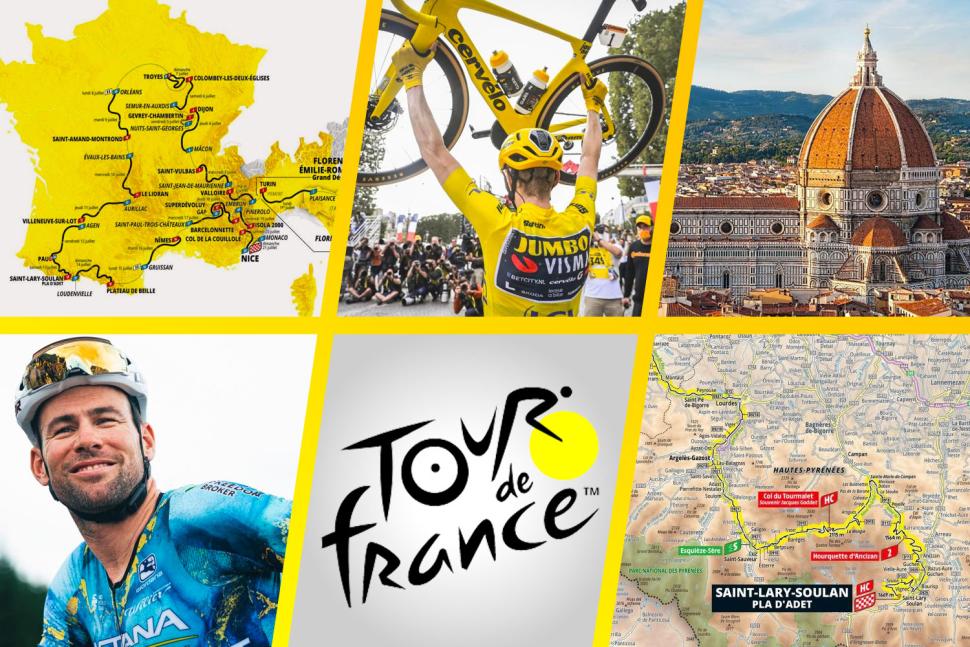 Tour de France 2024
Tour de France 2024Tour de France 2024, your ultimate stage-by-stage guide: From Florence to Nice, here's everything you need to know
A first-time Grand Départ in Italy, and an unprecedented finish outside Paris as the race concludes in Nice on the Côte d’Azur – whatever else happens on this year’s 111th edition of the Tour de France, those two aspects alone will make it a unique and, let’s hope, memorable one.
Florence has the honour of hosting the start of the opening stage on Saturday 29 June, fittingly for this perhaps most multi-faceted of sports.
If you see cycling as poetry, you have the city of Petrarch and Dante; as art, Michelangelo and Leonardo; as engineering and science, Brunelleschi and Galileo; as politics, the Medici family and Machiavelli; and if it’s sporting heroes you prefer, you have the great Gino Bartali.
He’s one of a trio of Italian riders who each left their unique mark on the race and will be commemorated as the Tour makes its way across the roads they grew up and trained on, the others being Marco Pantani and Fausto Coppi.
But while history, whether of the sporting kind or in its wider, more general context, will never be far from the mind in the opening days of the Tour, besides the landscapes and the architecture, the other thing that draws us to follow the race is of course how the three weeks will play out on the road itself, before the Tour reaches its climax on Sunday 20 July with a 33.7km individual time trial from Monaco to Nice. It's the first time the Tour has ended with an ITT since Greg LeMond famously snatched victory from Laurent Fignon on the final day of the 1989 edition.
This preview focuses on the route rather than the riders, but as ever it is worth touching on a couple of the narratives that will be resolved during July. They’re often familiar ones, but with each year that passes, subtle shifts can occur.
Picture: Zac Williams/SWpix.com
Take the question of whether Tadej Pogačar can regain his crown from Jonas Vingegaard. It’s a question that was valid last year too, of course, the difference being that while 12 months ago it was the Slovenian who had to overcome an injury that disrupted his preparations, this time round it is the Dane, the defending champion, who must do so.
Both are now two-time winners of the race, but it is Pogačar who heads here fresh from a storming Giro d’Italia win that gives him the opportunity to become the first man since Pantani to win the Italian and French Grand Tours in the same year.
But will his relentless pursuit of stage wins in Italy in a race he dominated from the start cost him in France, and if so will Vingegaard, still recovering from his crash in April, be fully fit to capitalise on it?
Among other contenders, the spotlight is on Primož Roglič, Vingegaard’s former team-mate and now leading Bora-Hansgrohe’s challenge. Being undisputed team leader takes some of the pressure and tension away, but while he comes here on the back of victory at the Dauphiné, it so very nearly slipped through his hands on the last day.
Roglič came so close of course to winning the 2020 Tour over his friend and compatriot, Pogačar, and with the Giro d’Italia also now in his palmarès can join the select group of riders to have won all three Grand Tours.
Among the first to do so was Eddy Merckx, which leads us onto one of the other big questions to be answered in this year’s Tour, again just as it was 12 months ago – can Mark Cavendish, who two years ago drew level with the Belgian great in number of Tour de France stages won on 34 apiece, forge ahead to claim the record outright?
Cavendish, who is now a Sir after he was knighted last week, crashed out of last year’s race the day after finishing second on Stage 7 in Bordeaux 12 months ago. He had also been pipped to the line in Paris on the final stage the previous year, days after drawing level with Merckx’s haul. He’s since been persuaded to defer his planned retirement and remain with Astana-Qazaqstan for one final season to try and clinch that elusive 35th stage.
Picture: Alex Whitehead/SWpix.com
Whether he does or not, he is still indisputably the most successful sprinter in the history of the Tour – but one final crossing of the line, arms aloft, would be a hell of a way to bid the race adieu.
That’s just a snapshot of a couple of things we will be looking out for in the next few weeks – and as always happens at cycling’s biggest stage race, there will be thrills and spills, smiles and tears, and in all likelihood things we can’t just predict, from cops tear-gassing the peloton to spectators causing crashes while greeting their grandparents on TV, and of course athletes at the top of the sport competing against some of the best scenery that Italy and France have to offer.
Here’s our stage-by-stage preview to the race, and don’t forget that if you fancy yourself as an armchair directeur sportive, you can play our Fantasy Tour de France game – head over here to learn more and sign up.
Stage 1
Saturday 29 June
Florence – Rimini (139km, hilly)
The 111th edition of Le Grand Boucle begins in Florence, Gino Bartali’s home city, with a tough stage to Rimini on the Adriatic coast that will is likely to see some hard racing from the start especially with Italian riders fighting to get in the break on home roads. Including seven categorised climbs, the 3,600 metres of climbing is unprecedented in the opening stage of the race.
The last of those takes the riders up to the hilltop republic of San Marino, the 13th country visited by the race, Covering 7.1km at an average gradient of 4.8 per cent it is crested 27km from the finish, followed by what could be a hectic descent towards the coast. As ever, the peloton will be nervous on the opening day, and any attacks from hopefuls for the overall title could blow the stage apart.
Stage 2
Sunday 30 June
Cesenatico – Bologna (199km, hilly)
This stage starts in the birthplace of Marco Pantani, the last man to complete the Giro-Tour double in the same season way back in 1998. Played out entirely in Emilia-Romagna, while there is less climbing today there are still five categorised ascents, the last of those, the climb to the Sanctuary of the Madonna di San Luca above Bologna familiar from finale of the Giro dell’Emilia, tackled twice.
Primož Roglič is a three-time winner of that race, while Aleksander Vlasov and Enric Mas have also triumphed there, but a three-week Grand Tour is a very different proposition to a late-season one-day race, and today’s stage finishes not at the top of the climb, but after a descent into the city centre. You’d expect a puncheur to win today, either solo or from a very select bunch sprint.
Stage 3
Monday 1 July
Piacenza – Turin (230.5km, flat)
All eyes today will be on Mark Cavendish as, in what will be his final participation in the race, he gets his first opportunity to clinch the outright record for stage wins at the Tour with victory number 35. The first of his 34 wins came 16 years ago, and to do so in Italy, his base for many years since his days at the British Cycling Olympic Academy in Quarrata, would bring his career full circle.
It’s a mainly flat stage which early on passes through Tortona, where two-time yellow jersey winner Fausto Coppi died, and with around 50km remaining after the final Category 4 climb, there’s plenty of time for the sprinters’ teams to hunt down the day’s break. Cavendish may not be consistently the fastest man in the peloton nowadays, but no-one reads a finish like him, and there would be no more popular winner.
Stage 4
Tuesday 2 July 2024
Pinerolo – Valloire (140km, mountain)
An unusually early first visit to the mountains, and one that starts in a town that has hosted the race before, with Edvald Boasson Hagen taking a memorable solo win in 2011 on an Alpine stage that finished there, the peloton setting off the following morning towards the Galibier where Andy Schleck took yellow only to be overhauled by Cadel Evans in the penultimate day’s time trial.
After a pair of Category 2 climbs, the second of which sees the race cross the border into France at around the halfway point of the stage, the riders face the Hors-Catégorie Galibier, averaging 5.1 per cent over its 23km. There’s still a descent of around 20km to be tackled, but there are time bonuses available at the summit, as well as the Souvenir Henri Desgranges prize for the first rider over.
Stage 5
Wednesday 3 July 2024
Saint-Jean-De-Maurienne – Saint-Vulbas (177.5km, flat)
The second sprinter-friendly stage of the race takes the riders north-west through the Alps along the valley of the river Arc towards Chambéry, and while there is some climbing, the second Category 4 ascent of the afternoon is crested with around 35km remaining, giving ample opportunity for anyone with an eye on the win who may have been distanced ample opportunity to get back into the group.
It’s the kind of transitional stage you might expect to see later in the race, though with a break composed of fewer riders that will be kept on a reasonably tight leash by teams looking to contest the expected bunch finish. The intermediate sprint, which comes with around a third of the stage remaining, should provide a strong pointer of who has ambitions to win the green points jersey.
Stage 6
Thursday 4 July
Maçon – Dijon (163.5km, flat)
As yesterday, the strong likelihood is that today will end with a bunch sprint, and the relatively short parcours will be welcomed by those still feeling the climb of the Galibier in their legs, or who are nursing injuries from crashes earlier in the race, as the peloton heads north through the vineyards of Burgundy.
The sole Category 4 climb of the day is crested after just 10km have been ridden, so it could be a fast start as riders jostle to get into the break, which is likely to be established once the riders are on the descent. It’s then pan-flat all the way to the finish, with a straight 800-metre run-in to the line, which will count against any remaining escapees looking to keep the chasing peloton at bay.
Stage 7
Friday 5 July
Nuits-Saint-Georges – Gevrey-Chambertin (25.3km, individual time trial)
The first of two individual time trials in this edition of the Tour is a short and predominantly flat one, which should limit any potential time gaps between those fighting for the overall victory. That said, there’s likely to be some shuffling of places towards the top of the general classification, and by the end of the day we’ll have a clearer picture of the chief contenders for the main prize this year.
As far as the day’s parcours which begins on forestry before heading through vineyards and forestry goes, the 1.6km climb of the Côte de Curtil-Vergy at an average gradient of 6.1 per cent is the sternest test, but you’d expect the stage win to go to an out-and-out specialist against the clock who will be targeting it specifically, rather than one of the overall contenders.
Stage 8
Saturday 6 July
Semur-En-Auxois – Colombey-Les-Deux-Églises (183.5 km, flat)
France goes to the polls tomorrow for the second round of the snap parliamentary election called in June by President Emmanuel Macron; by coincidence, today’s stage finishes in a town forever associated with the towering figure of the country’s politics in the 20th Century, Charles de Gaulle, who made his home in Colombey-Les-Deux-Églises in the 1930s and is buried there.
The peloton faces five categorised climbs, the first three of which are short but punchy, and it could be a while until a break finally takes shape with the terrain likely to encourage counterattacks. Of the three ‘flat’ stages to date, this seems the one most suited to seeing the escapees prevail – although as the afternoon wears on, the sprinters’ teams will be riding hard to try and set up a bunch finish.
Stage 9
Sunday 7 July
Troyes – Troyes (199km, hilly)
Time trials aside, it’s highly unusual for a Tour stage to start and finish in the same place, but that is by no means the most remarkable thing about today – instead, it’s the Champagne region’s white gravel roads, similar to Tuscany’s fabled strade bianche and used in the 2022 Tour de France Femmes avec Zwift, that take centre stage with 14 sectors in all to be crossed.
That could prompt some interesting bike and tyre choices in the peloton, and the weather will also have an influence on how the day turns out – if it’s been dry in the days leading up to the stage, the Tour cavalcade will kick up clouds of dust, if it’s raining, it will be a mud-fest. With lumpy terrain including a quartet of four Category 4 climbs, it has all the makings of a mini-Classic.
Rest day
Monday 8 July
Orléans
Stage 10
Tuesday 9 July
Orléans – Saint-Amand-Montrond (187.5km, flat)
The race resumes in Orléans in the Loire Valley – as close as it will get to Paris this year, the day’s parcours taking the peloton south – with another stage that is all but guaranteed to end in a sprint in a town that as far as the Tour is concerned is best known for being where Carlos Sastre saw off the challenge of Cadel Evans in the final individual time trial to seal his overall victory in 2008.
There’s not a single categorised climb today and it’s similar to the type of stage regularly encountered in the opening week 15 or so years ago. But with the intermediate sprint coming fairly early, with 130km still to ride, if the contest for the green jersey is close there could be an incentive for teams with designs on it to neutralise breaks ahead of it to maximise their potential points haul.
Stage 11
Wednesday 10 July 2024
Évaux-Les-Bains – Le Lioran (211km, mountain)
The race may be hitting its halfway point, but the Massif Central today sees just the second mountain stage. There are six categorised climbs in all, the highest ranked of which is the Category 1 Puy Mary Pas de Peyrol, covering 5.1km at an average of 8.1 per cent, its summit coming with 31km remaining ahead of what could be an explosive finish on a day with a total elevation gain of 4,350 metres.
The availability of bonus seconds on the penultimate climb, the Col du Pertus which is crested with just under 15km remaining could give an incentive to teams with overall contenders to sweep up any escapees early, and while the stage is not officially classed as a summit finish, the top of the final ascent, the Col de Font de Cère, comes with a little over 3km remaining.
Stage 12
Thursday 11 July
Aurillac – Villeneuve-Sur-Lot (204km, flat)
The start and finish towns today have both hosted the race before – Aurillac making its ninth appearance, Villeneuve-Sur-Lot its third, and on paper at least, the stage looks like one of those on in which the lead group will be swept up by the peloton ahead of the sprinters fighting it out for the win.
But undulating terrain throughout the stage, history suggests that it could be one for the escape artists, who have prevailed on both occasions on which a stage has finished in Villeneuve –two-time Italian national road champion Massimo Podenzano in 1996 and, four years later, the Dutch rider Erik Dekker. Will today be third time lucky here for the sprinters?
Stage 13
Friday 12 July 2024
Agen – Pau (165.5 km, flat)
Since hosting the race for the first time in 1930, nowhere outside Paris has welcomed the Tour more often than Pau, today marking the 75th time a stage has started or finished in the city, its location making it a natural stop on the way into or out of the western Pyrenees. Its extensive history with the race also sees Pau bill itself as The Capital of the Tour.
If the race is heading out of the Pyrenees, the city typically hosts the finish of a mountain stage; heading towards them, it’s likely to be a flat one, as is the case today. As far as the parcours goes, there are a couple of Category 4 climbs late on, and as yesterday, it could be a close-run thing as to whether the break carries the day, or the stage ends with a bunch sprint.
Stage 14
Saturday 13 July 2024
Pau – Saint-Lary-Soulan Pla d'Adet (152km, mountain)
It’s been a long wait, but finally the third weekend of the Tour sees the first of this year’s four summit finishes on a day that includes one of the most anticipated climbs of the race whenever it is included, the Col du Tourmalet, which is crested today with a little over 60km still to ride, and where the Souvenir Jacques Goddet prize is up for grabs for whoever rides over the top at the head of the race.
The climb of the Hourquette d’Ancizan precedes the final Hors Catégorie ascent to Pla d’Adet, averaging 7.9 per cent over its 10.6km, but heading into double-digit gradients in its first 4km. The big names in the overall will have been chomping at the bit for today’s stage as the battle for the yellow jersey begins in earnest – and today may show who has the legs for it, and who doesn’t.
Stage 15
Sunday 14 July 2024
Loudenvielle – Plateau de Beille (198km, mountain)
Bastille Day falling on the penultimate Sunday of the Tour invariably means not only big crowds but also a big mountain stage to match, and this could be the pivotal one of this year’s race. There’s a whopping 4,850 metres of climbing on the menu for the Fête National starting the moment the flag drops and the race heads up the Col de Peyresourde.
It’s guaranteed that there will be an almighty fight to get into the break, including from teams or riders who have had a disappointing race to date, while the GC teams will also look to get riders up the road to be able to help their team leaders later on. With four Category 1 ascents ahead of that final Hors-Catégorie climb to the Plateau de Beille, fireworks are pretty much guaranteed.
Rest day
Monday 15 July 2024
Gruissan
Stage 16
Tue 16 July 2024
Gruissan – Nîmes (189km, flat)
There may be another five stages to come after today, but with the race skipping Paris this year, it’s the last chance saloon for the sprinters, the sole uphill challenge being a short Category 4 climb with more than 60km remaining. Meanwhile, the GC riders will be looking to stay out of trouble and conserve energy ahead of the battle for the overall title heading back into the mountains.
Should he have drawn a blank so far during the race, it’s also the final opportunity for Mark Cavendish to move ahead of Eddy Merckx in all-time stage victories – and today’s finish is in a city where the Manxman has triumphed before, outgunning Robbie McEwan, now a TV pundit on the race, to take his fourth career stage win at the race back in 2008.
Stage 17
Wednesday 17 July 2024
Saint-Paul-Trois-Châteaux > Superdévoluy (178 km, mountain)
This is a stage that a punch into its final 30km or so, with three categorised climbs to be tackled including the Category 1 Col du Noyer, which has bonus seconds available at the top. It’s unlikely those will go to anyone challenging for the overall title, with this stage looking more like one that will be contested by a big breakaway group.
In part, that’s because other mountain stages this week appear to provide sterner tests and thereby the opportunity to put more time into rivals through well-planned attacks – but having said that, even if not racing for the win today, any sign of weakness from a rider towards the top of the overall standings could see the GC group explode as rivals try and capitalise.
Stage 18
Thursday 18 July
Gap – Barcelonnette (180km, hilly)
Five Category 3 climbs pepper the profile today and while, barring crashes or other unforeseen events it is highly unlikely to prove influential for the overall given the mountain and time trial stages in the days ahead, it could still provide an entertaining day’s racing given that the final three days feature two mountain stages followed by an individual time trial.
Why? Well, we’re a little over a couple of weeks away from the men’s road race at the Olympic Games which features a succession of short but leg-sapping climbs throughout, so for any puncheurs or Classics specialists left at the Tour who are also eyeing up a medal, today represents perhaps their last chance to test their form in an actual race ahead of Paris.
Stage 19
Friday 19 July
Embrun – Isola 2000 (145km, mountain)
The race heads towards its final weekend with the first of two summit finishes, this one including the Cime de la Bonnette – the highest paved road in France, and third highest in Europe, topping out at 2,802 metres, and one of three summits of over 2,000 metres that will be tackled today, the others being the Col de Vars and the climb to the finish at the Isola 2000 ski resort.
Whether by coincidence or design, the finish line is placed at 2,024 metres above sea level at the top of a 16.1km climb with an average gradient of 7.1 per cent. While training at altitude is the norm for big-name riders these days, the rarified atmosphere, not least on the 22.9km ascent of the Bonnette, which averages 6.9 per cent, could see some struggle through oxygen deficit.
Stage 20
Saturday 20 July 2024
Nice – Col de la Couillole (133km, mountain)
Less than four-years after Nice hosted the Grand Départ of one of the strangest ever editions of the Tour in 2020, postponed until September of that year due to the Covid-19 pandemic, the Côte d’Azur metropolis again finds itself at the centre of the cycling world as the race finishes outside Paris for the first time as it prepares for the Olympic and Paralympic Games, now less than a week away.
The remaining riders head out of Nice today for the final mountain stage, returning tomorrow one by one at the end of the individual time trial that brings the curtain down on the race. The penultimate day brings four big climbs, the final one being the Col de la Couillole which averages 7.1 per cent over its 15.7km.
How today plays out depends on the overall standings, due to tomorrow’s live rather than neutralised concluding stage. If things are close at the top of the GC, we’ll see attacks as riders aim to give themselves the best possible opportunity against the clock – and their rivals – tomorrow; if time gaps are too wide, conversely, they may simply defend their positions, making it a day for the break.
Stage 21
Sunday 20 July
Monaco-Nice (33.7km, individual time trial)
In the 15 years we’ve been previewing the race, the final stage is the one that writes itself – the photocalls, the Champagne, the procession into Paris, the helter-skelter laps of the Champs-Élysées ahead of a frantic sprint finish and the podium celebrations in the heart of the French capital – but clearly that script has had to be ripped up this year.
It's 35 years since the race ended with an individual time trial, Greg LeMond snatching victory from Laurent Fignon in what remains the closest ever edition of the race. Starting in Monaco, the route includes two climbs, La Turbie and the Col d’Eze, before sweeping down into Nice and along the Promenade des Anglais then switching back towards the finish on Place Massena.
A spot on the final podium and even the overall title could still be in play. The penultimate day’s test against the clock in recent Grand Tours have seen Tadej Pogačar overhauling Primož Roglič to win the 2020 Tour, the latter coping with a late mechanical to take the maglia rosa from Geraint Thomas in last year’s Giro d’Italia. Organisers will be hoping for similar drama today as the 111th Tour concludes.
Latest Comments
- stonojnr 2 hours 35 min ago
fwiw in that area, yes absolutely its normal, its like a lowland heath sandy area, most of the b roads have alot of sand at times,, it just blows...
- ROOTminus1 4 hours 22 min ago
I'm glad the article went into more detail and cleared things up, the headline had me worried that some autonomous building had run rampant and...
- mark1a 4 hours 41 min ago
Still here, just showing a few signs of wear and tear. Hopefully still serviceable for some years to come.
- Secret_squirrel 5 hours 11 min ago
Has he fully recovered though, and will he ever?...
- Rendel Harris 5 hours 25 min ago
How can you know that you are "equally fearful" as "any female cyclist"? There is no possible way of quantifying such emotions and female cyclists...
- chrisonabike 5 hours 57 min ago
I think it would be fairer to blame the moon - as in "my client is a loony".
- Bungle_52 6 hours 21 min ago
Nice idea but Gloucestershire Constabulary are not interested as exemplified by this prvious NMOTD. Not only was there NFA for the close pass in...
- hawkinspeter 7 hours 53 min ago
I think black boxes are great for early detection of cognitive decline and/or sight problems. Someone's driving is going to become much less smooth...
- Bigtwin 8 hours 28 min ago
It's a fashion. https://guildford-dragon.com/shalford-driver-who-smashed-shalford-war-me...

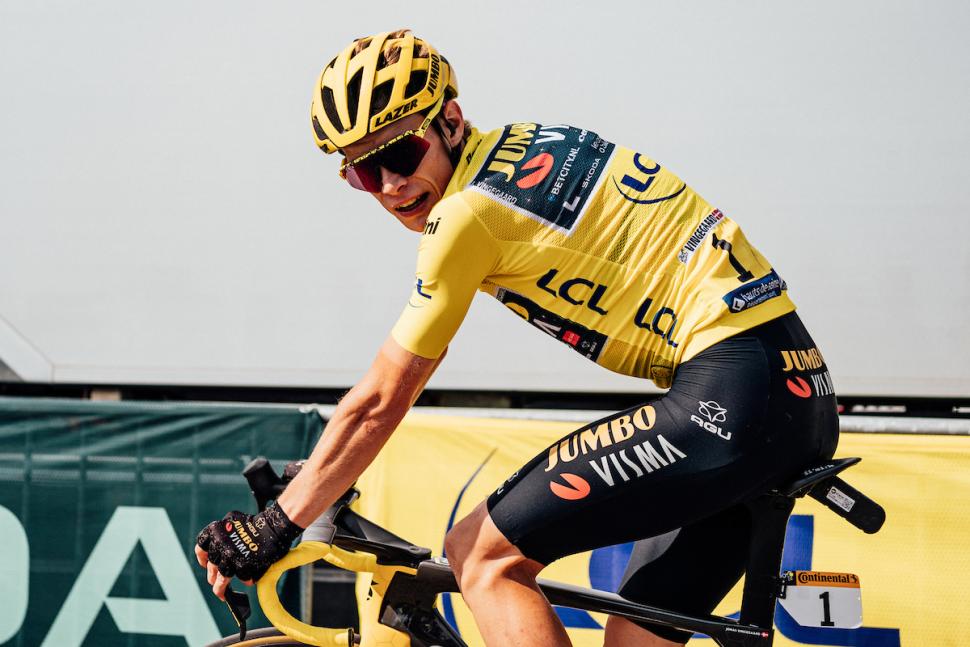
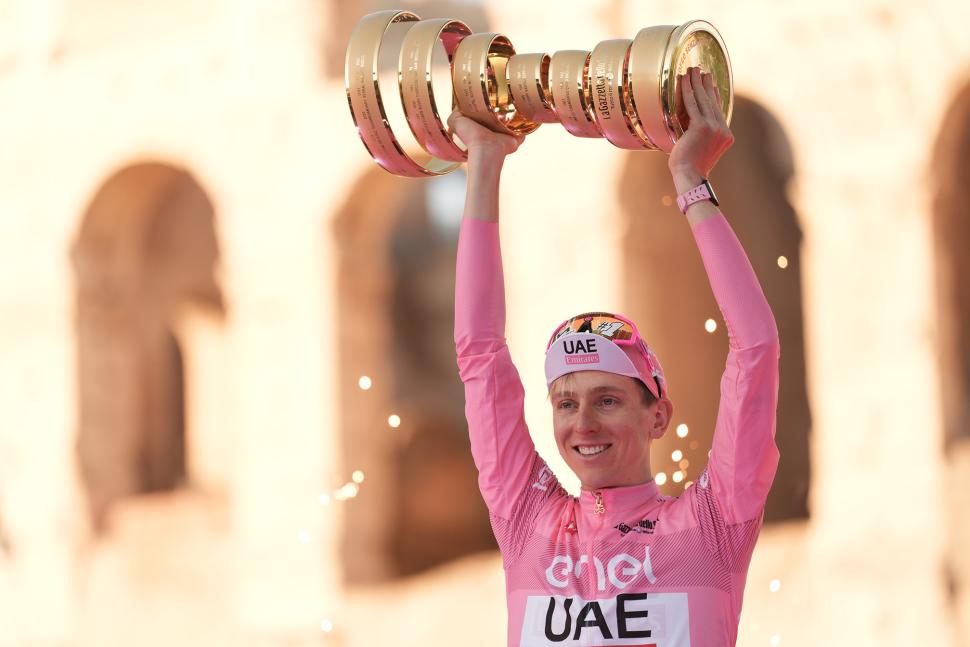
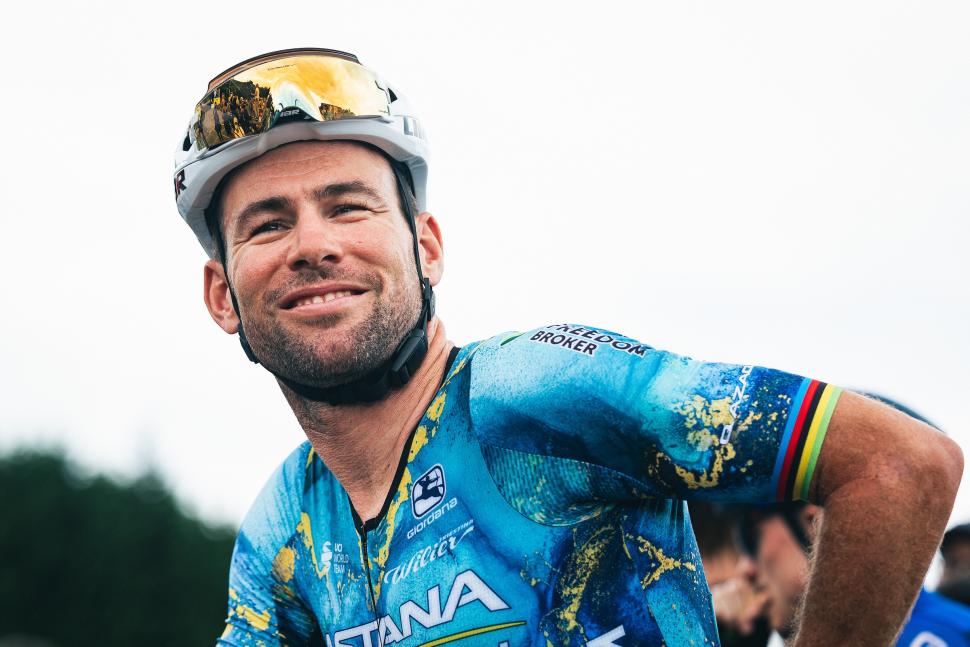
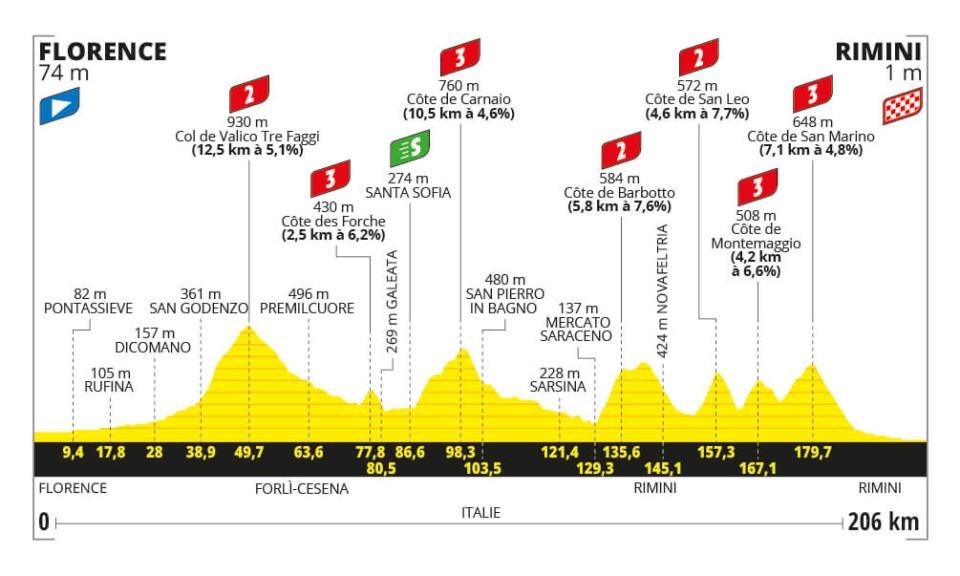
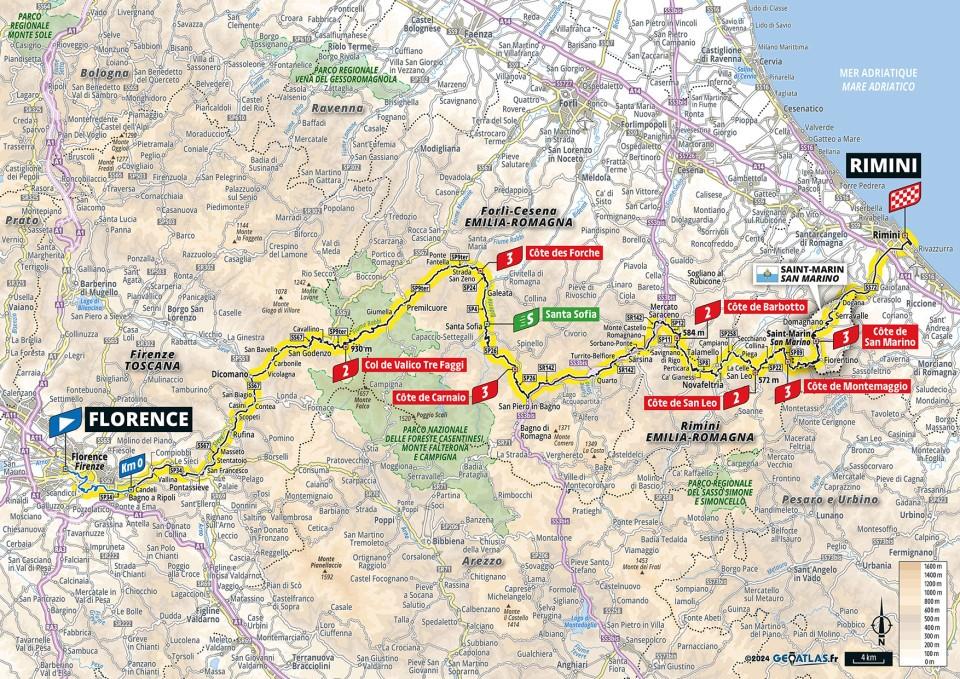
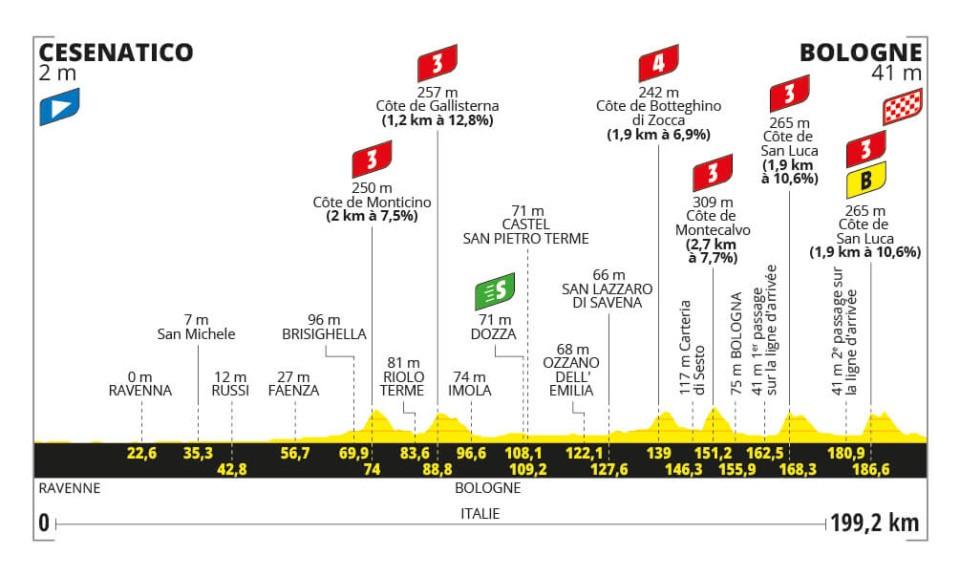
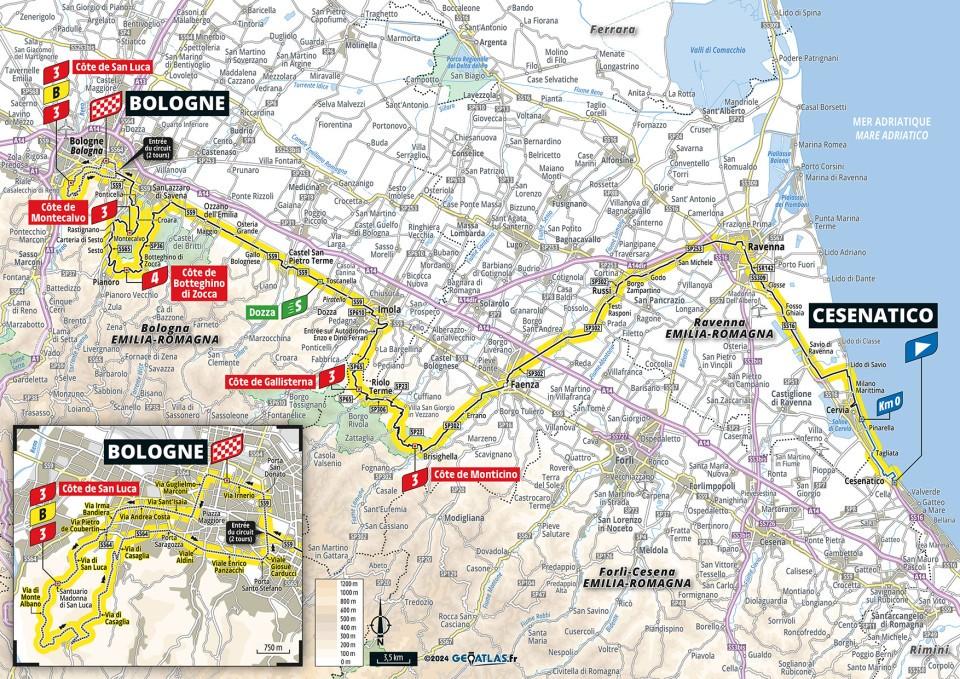
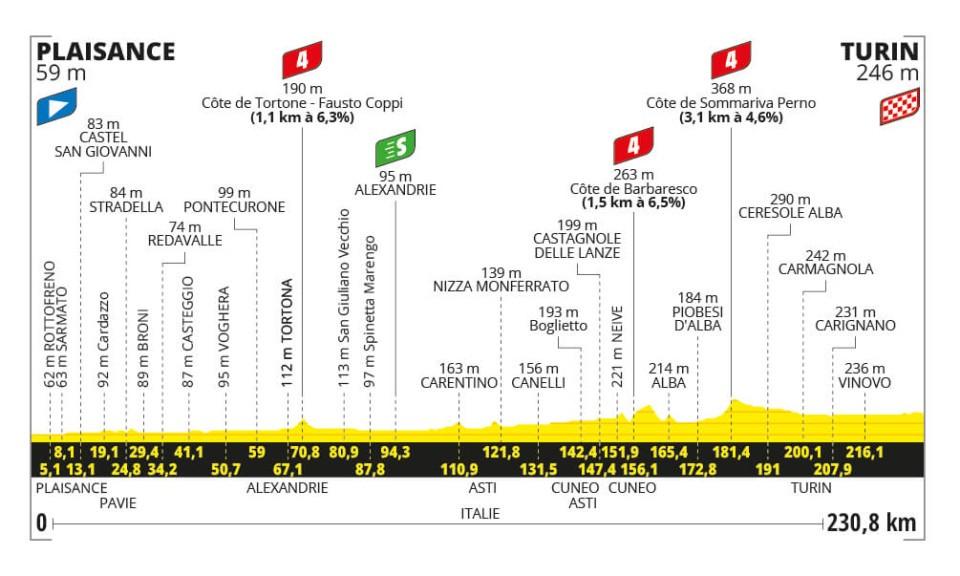
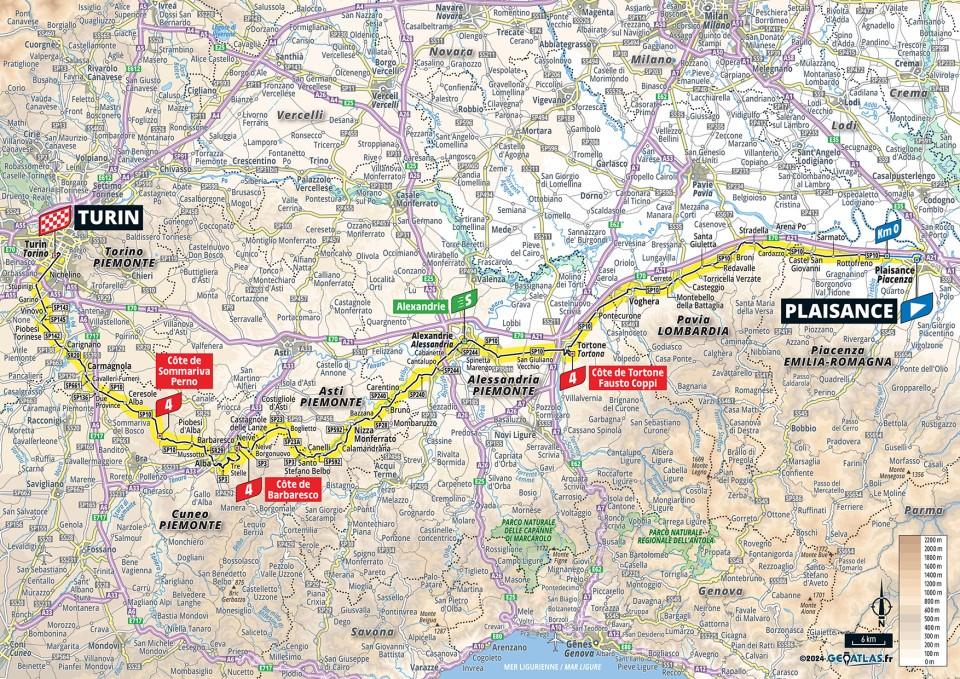
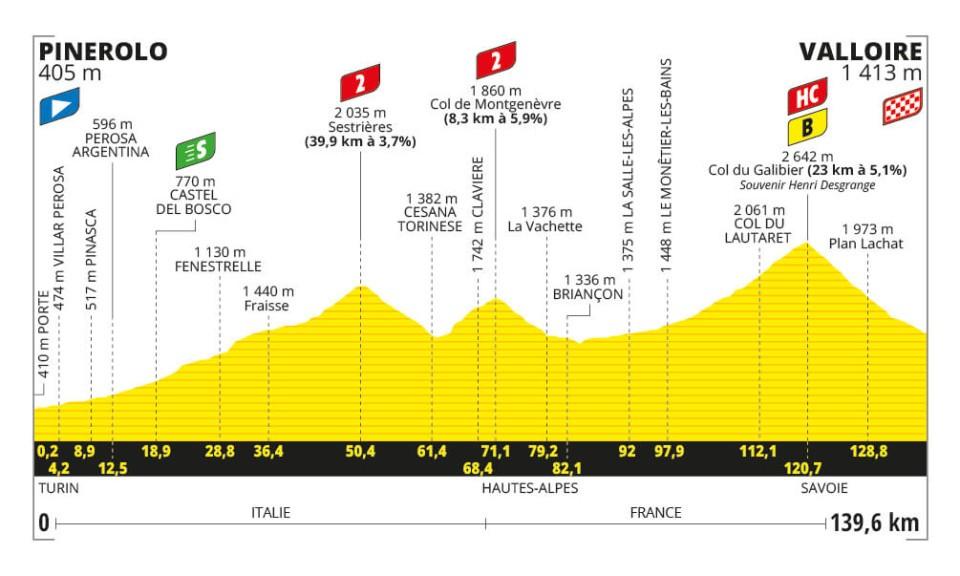
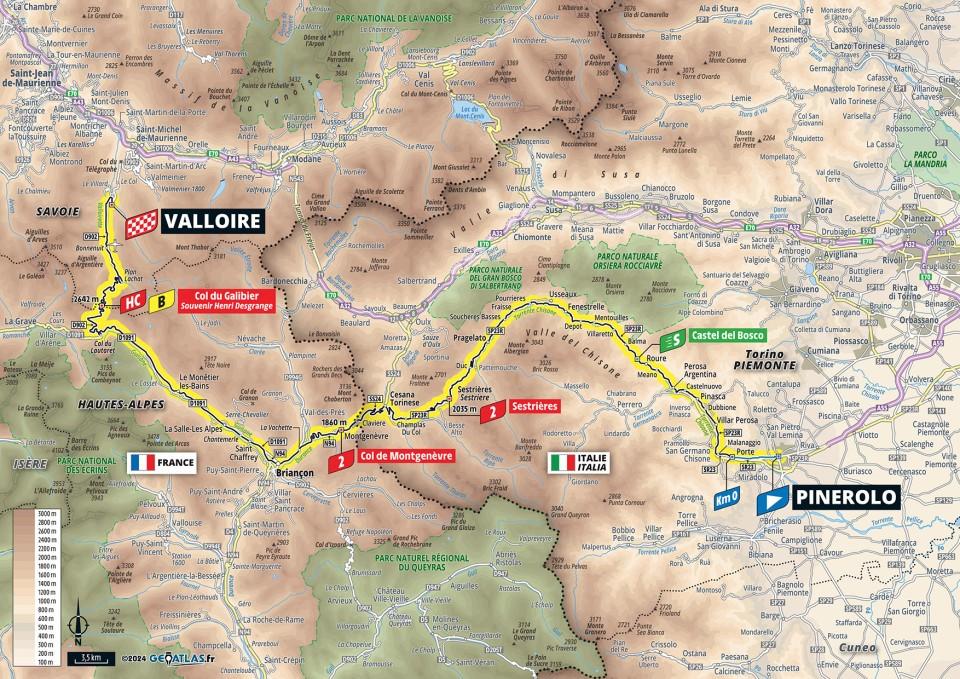
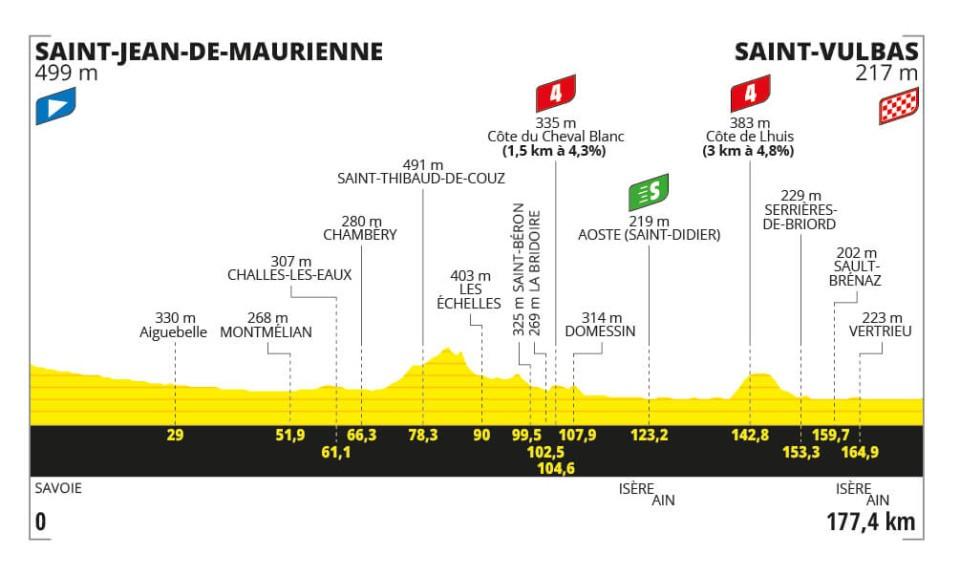
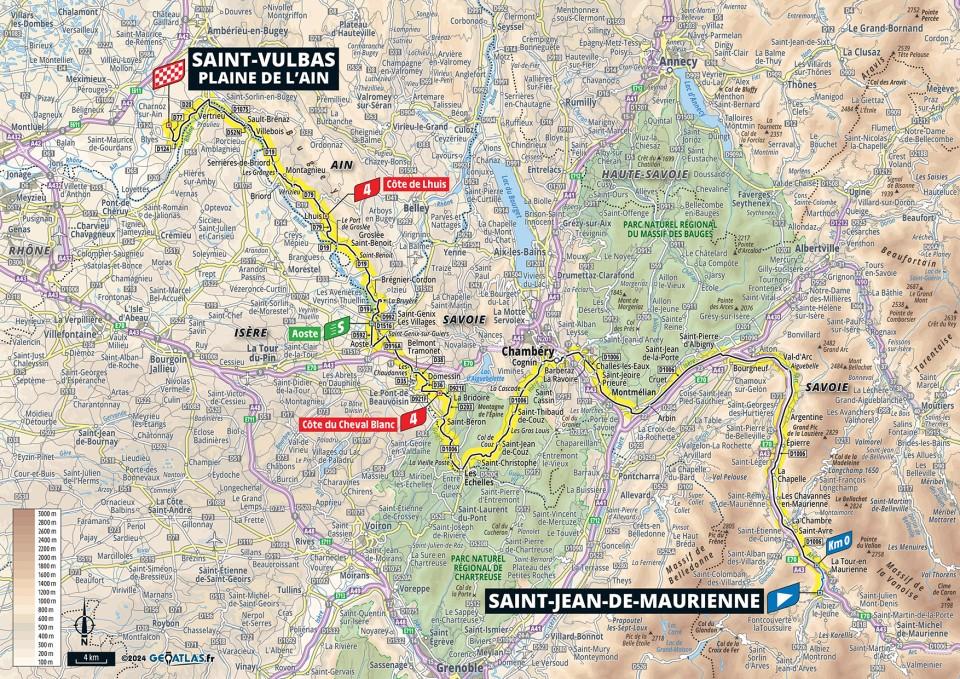
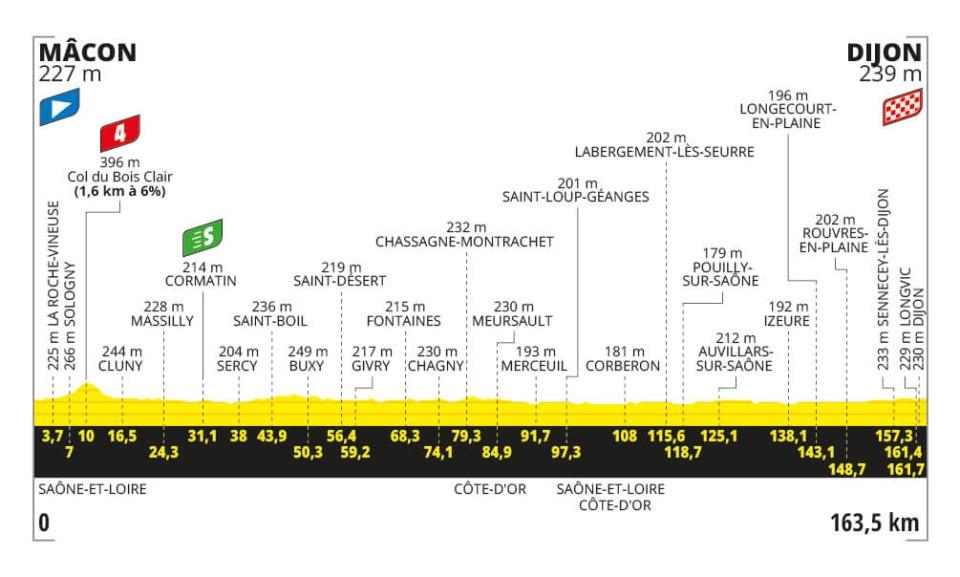
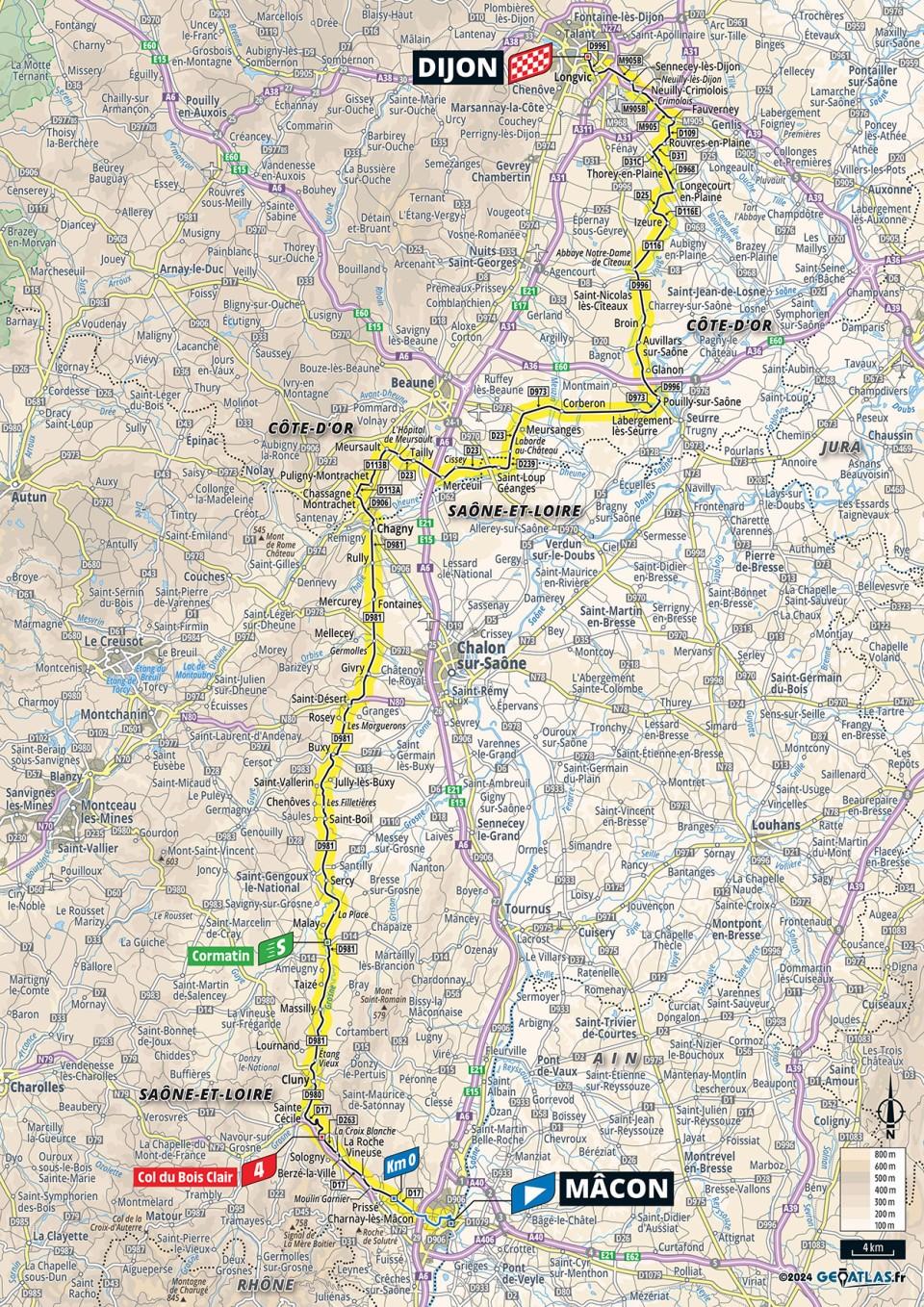
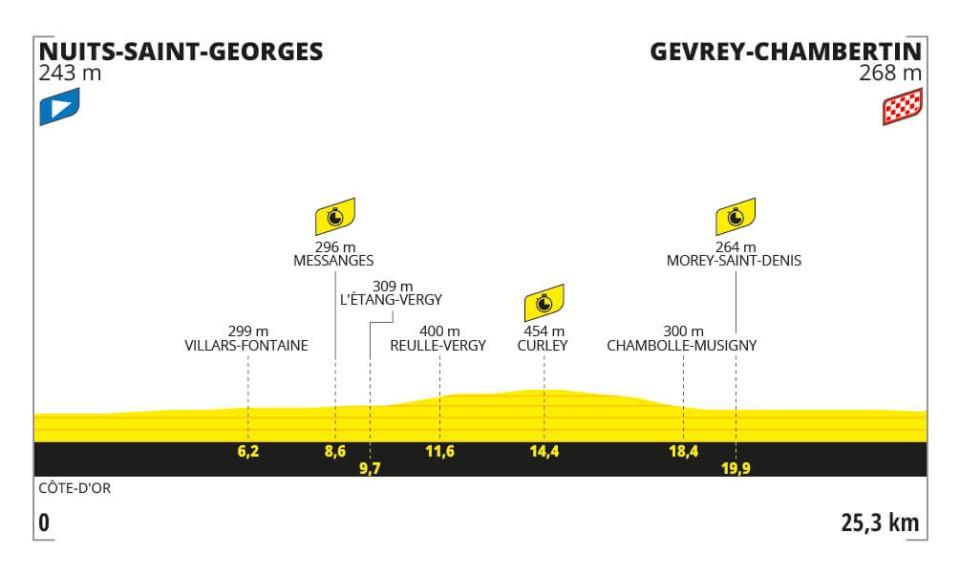
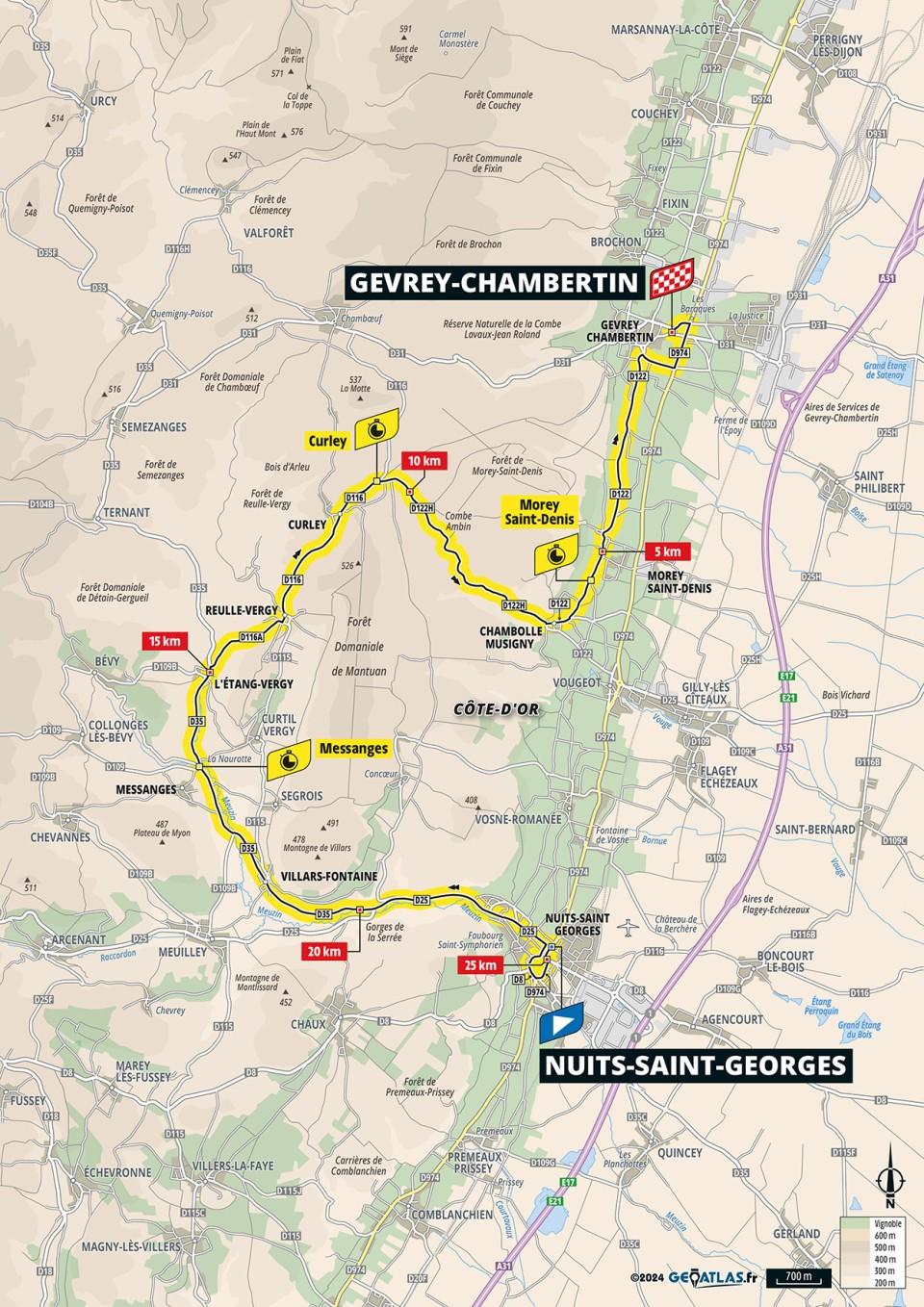
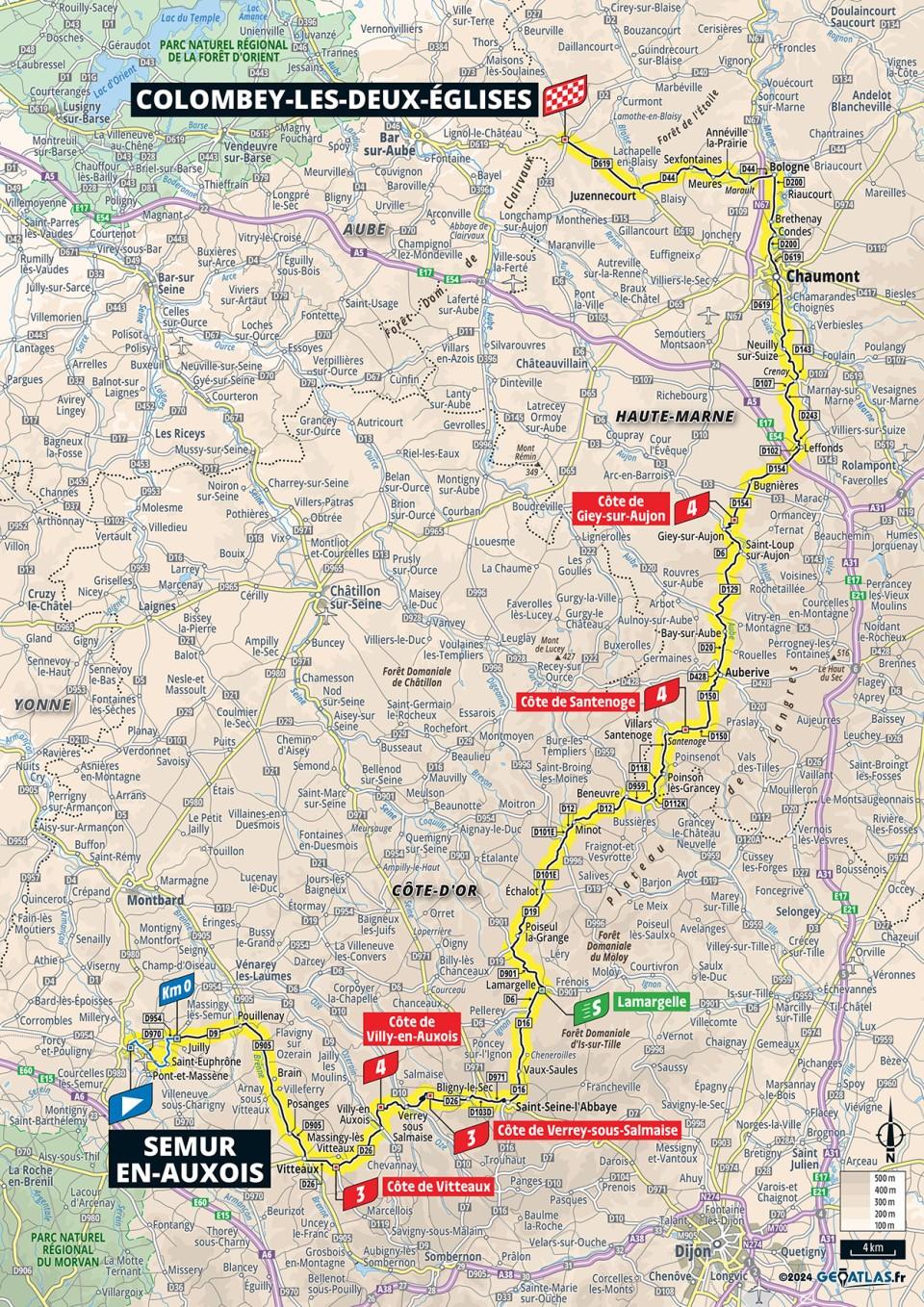
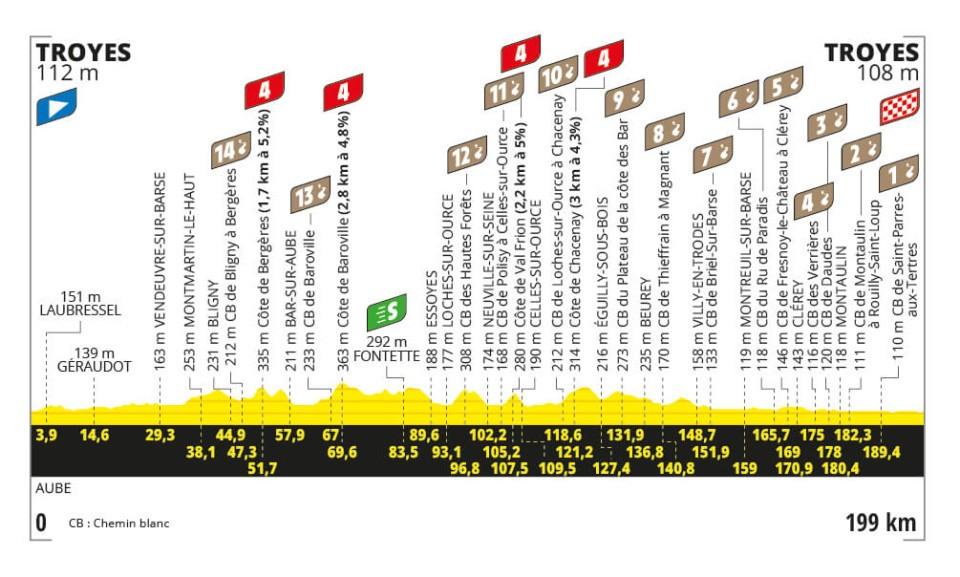
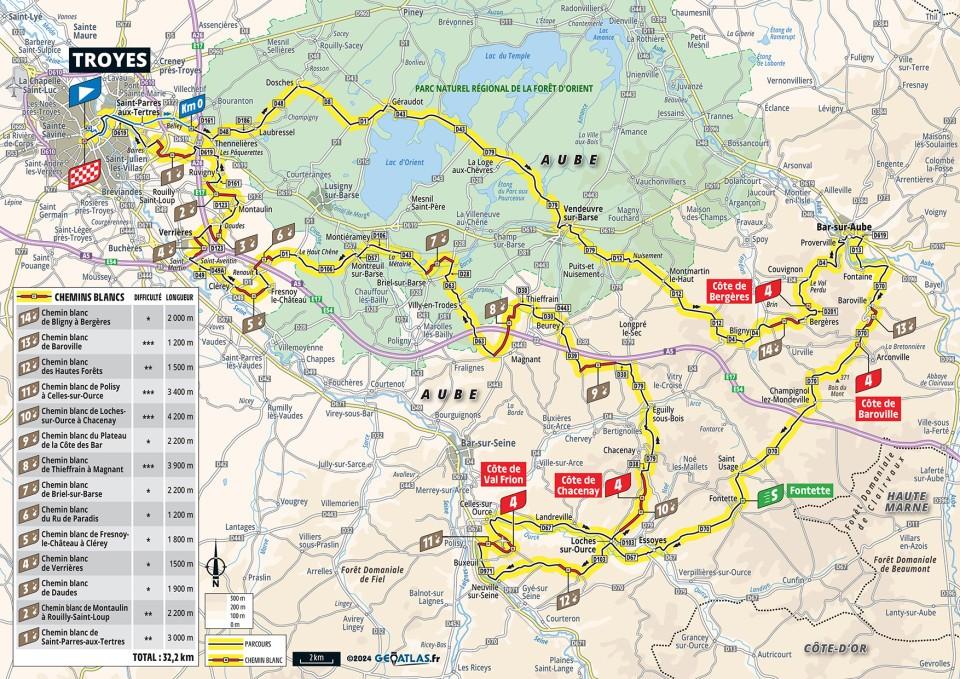
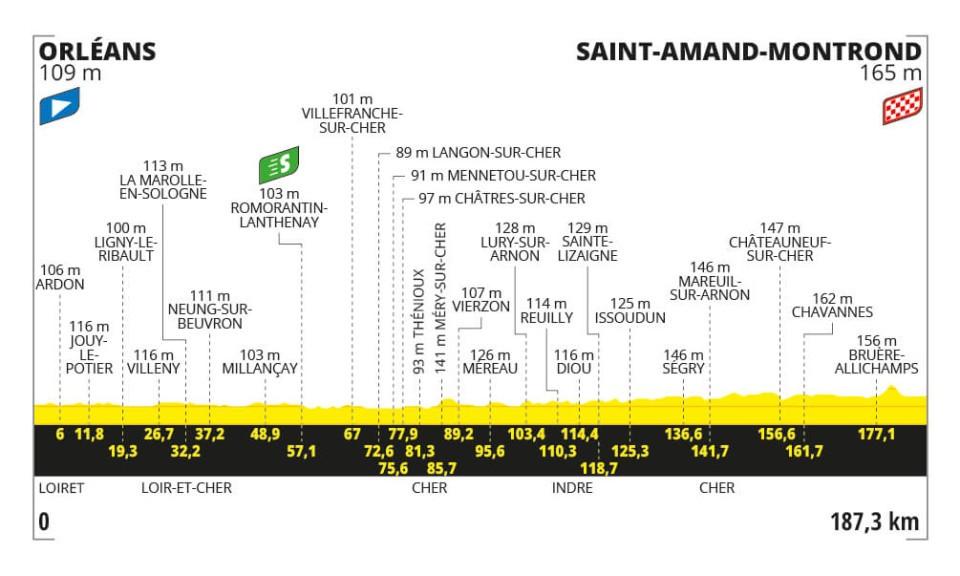
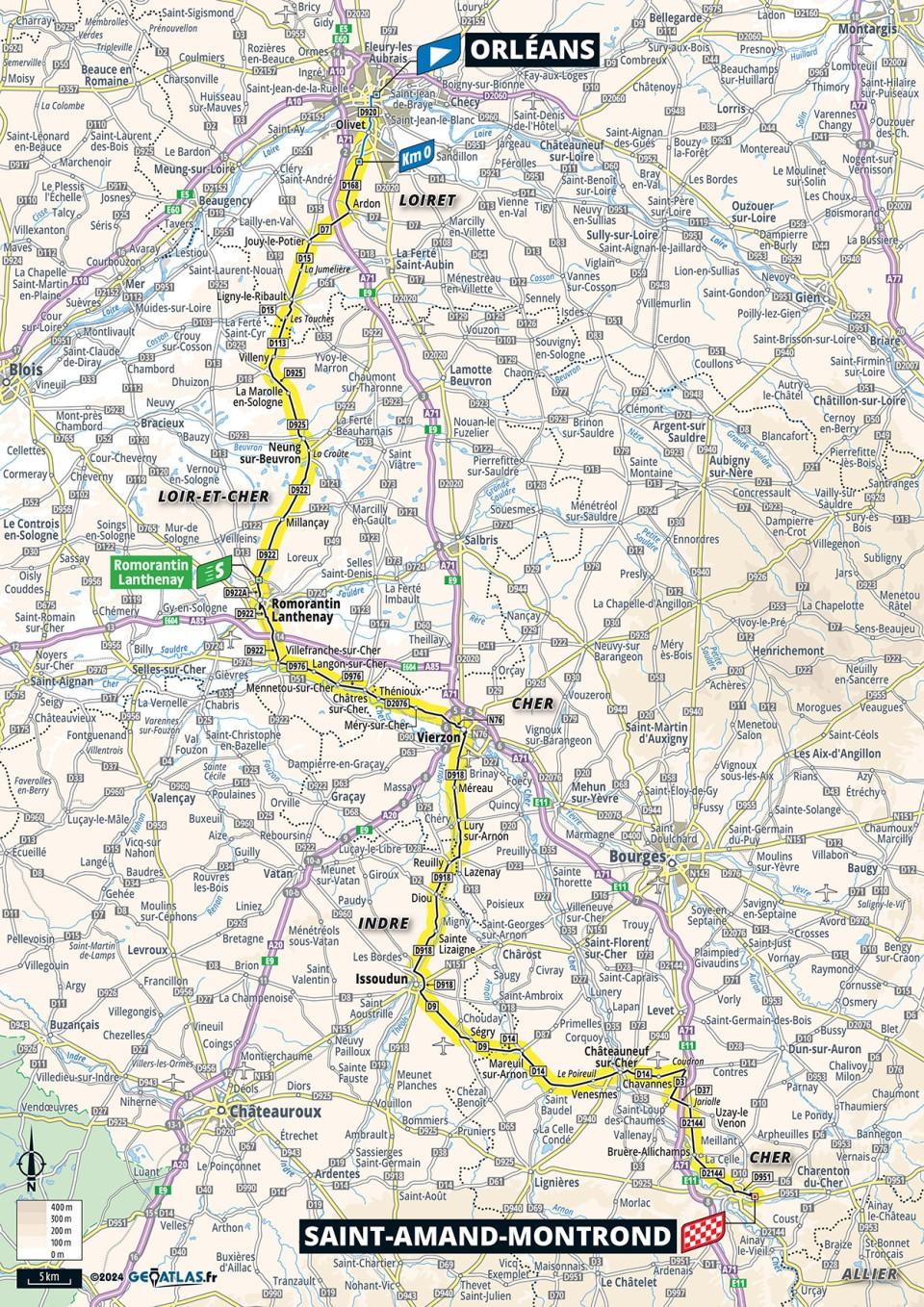
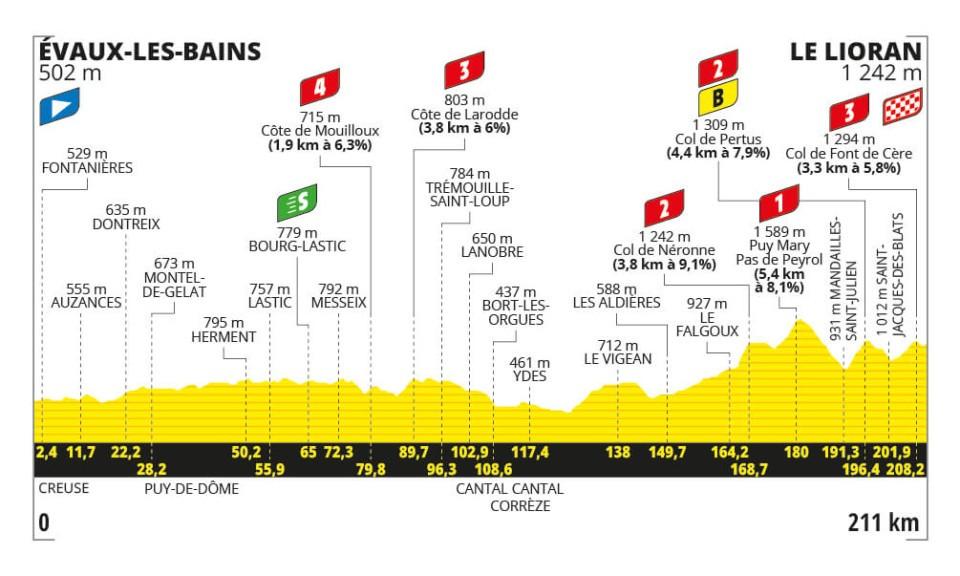
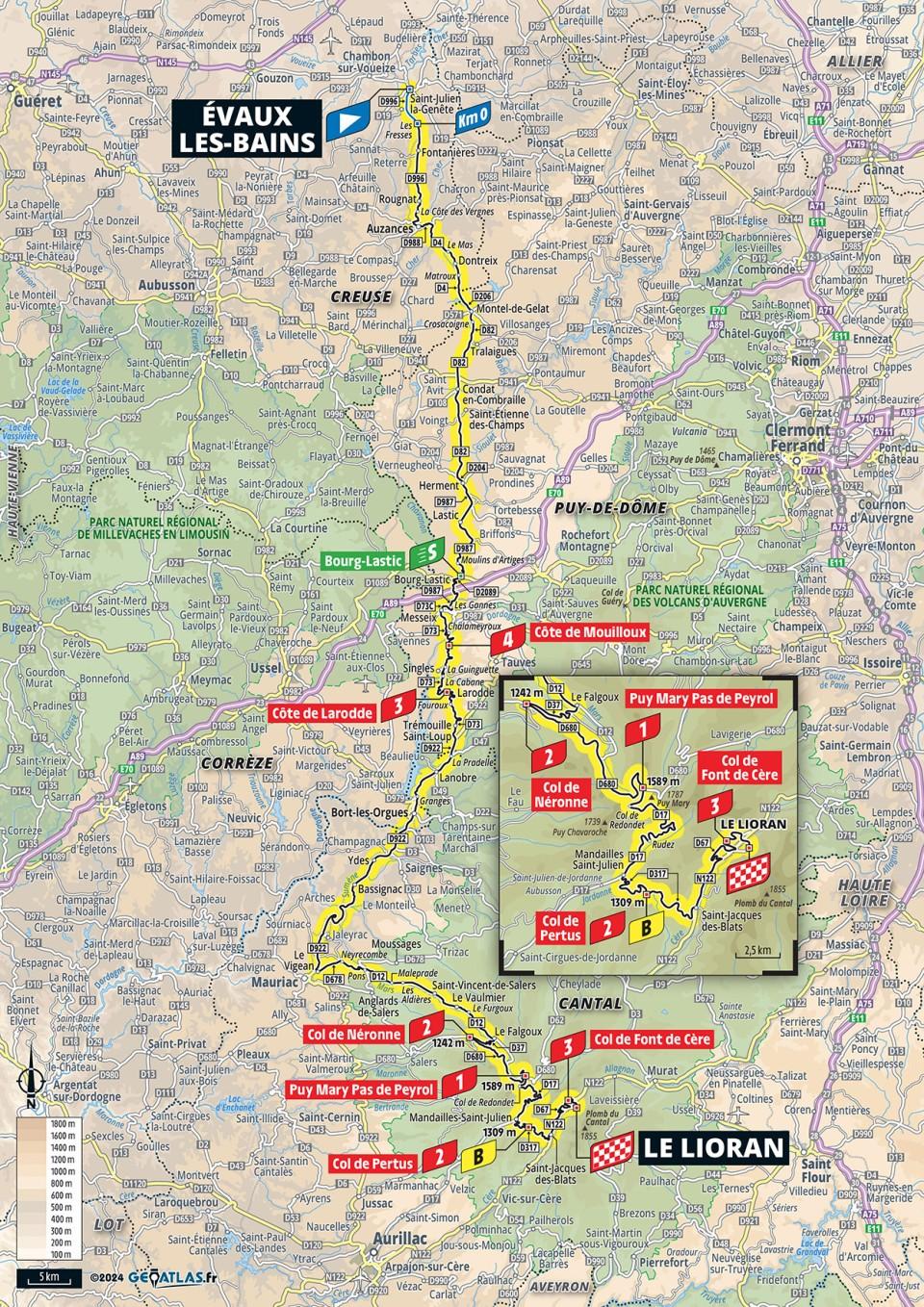
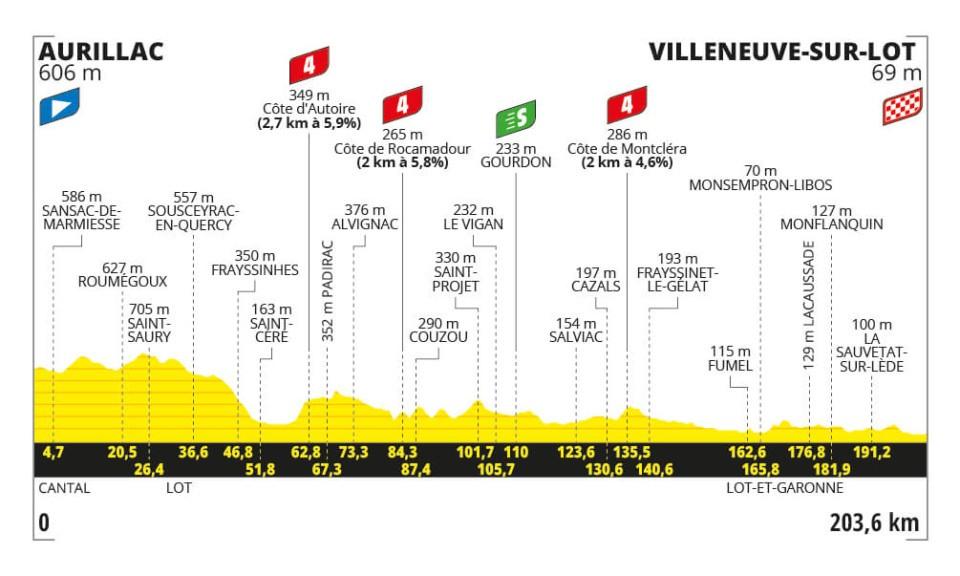
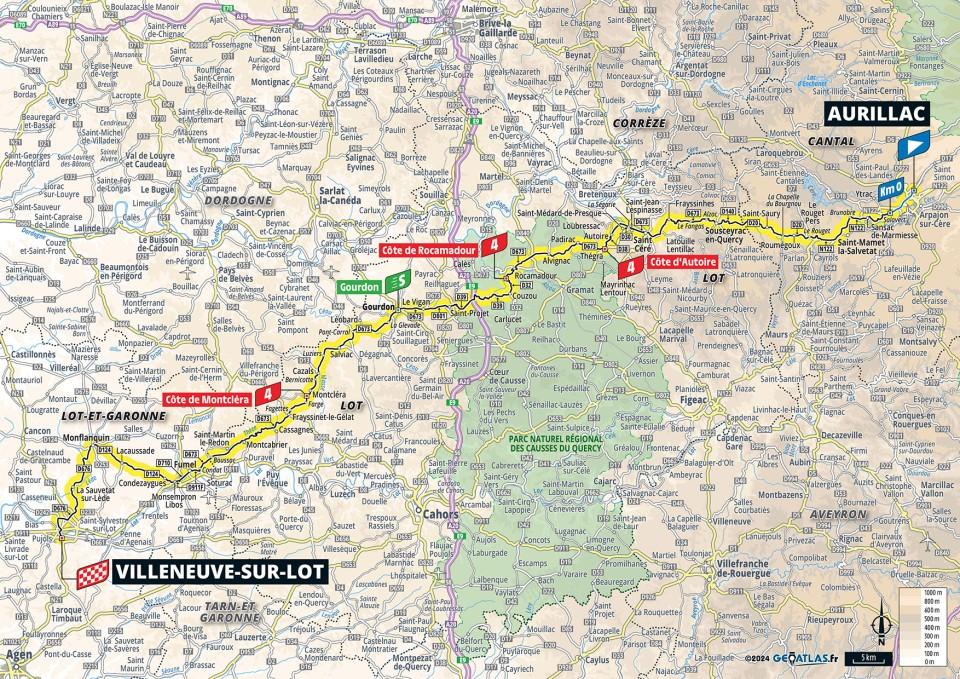
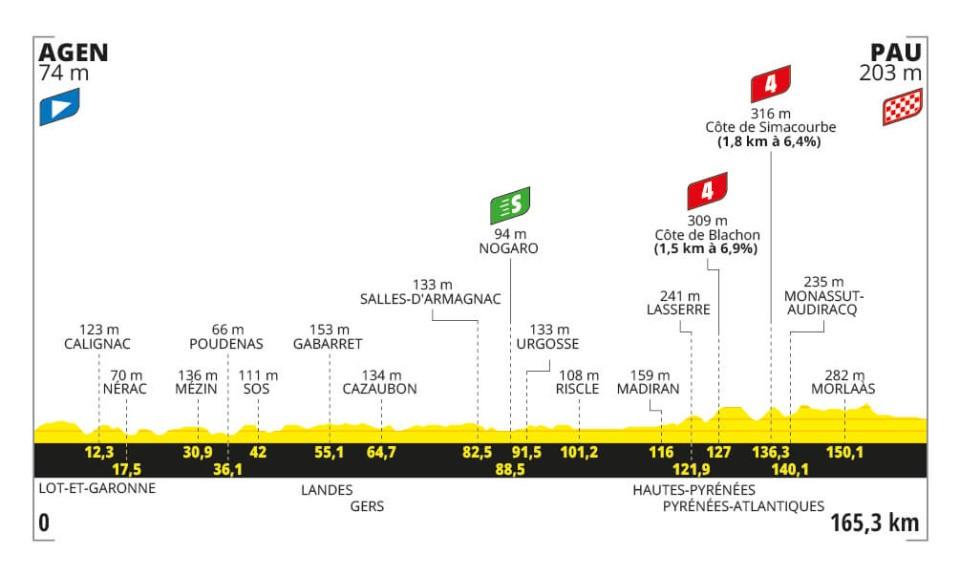
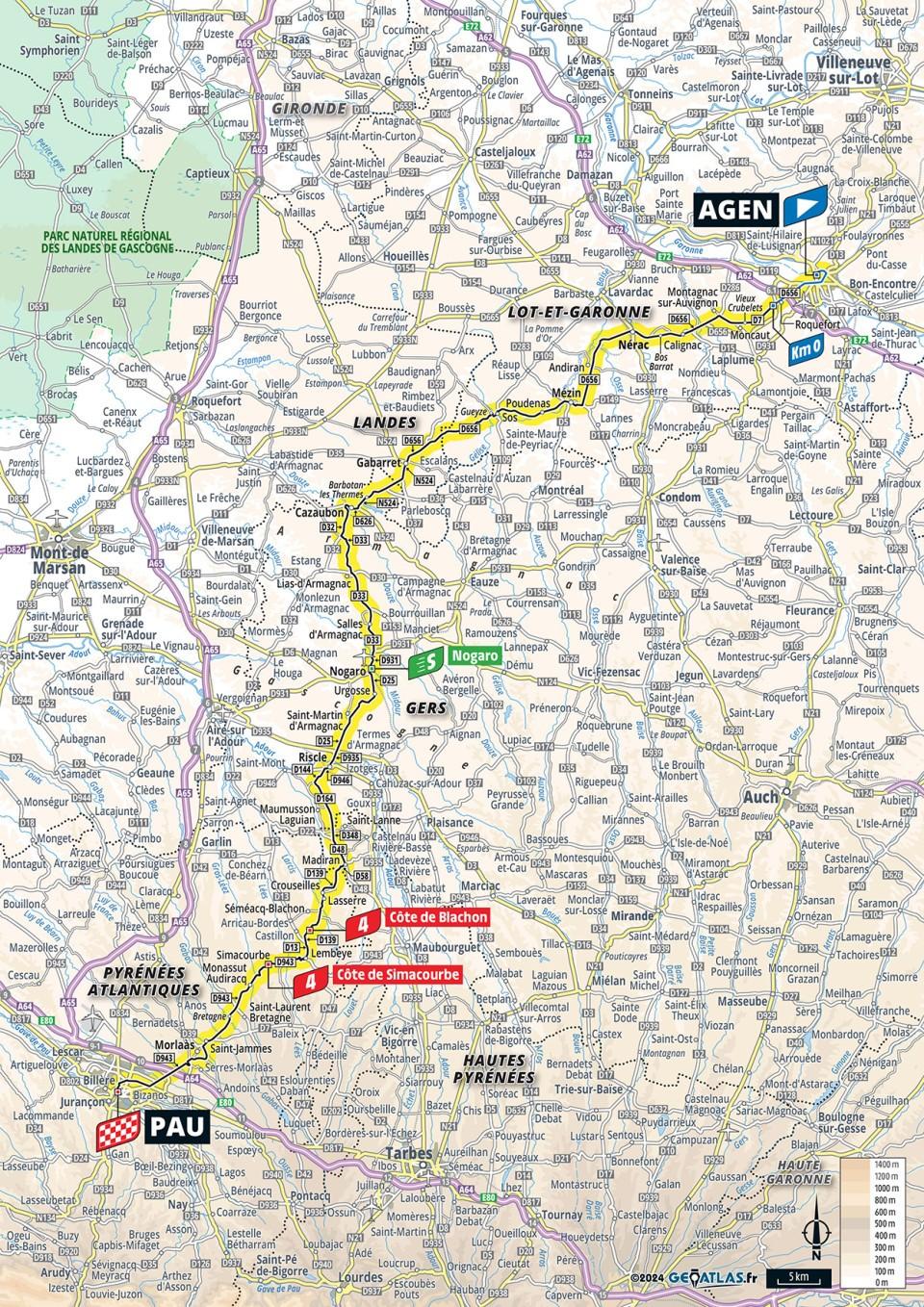
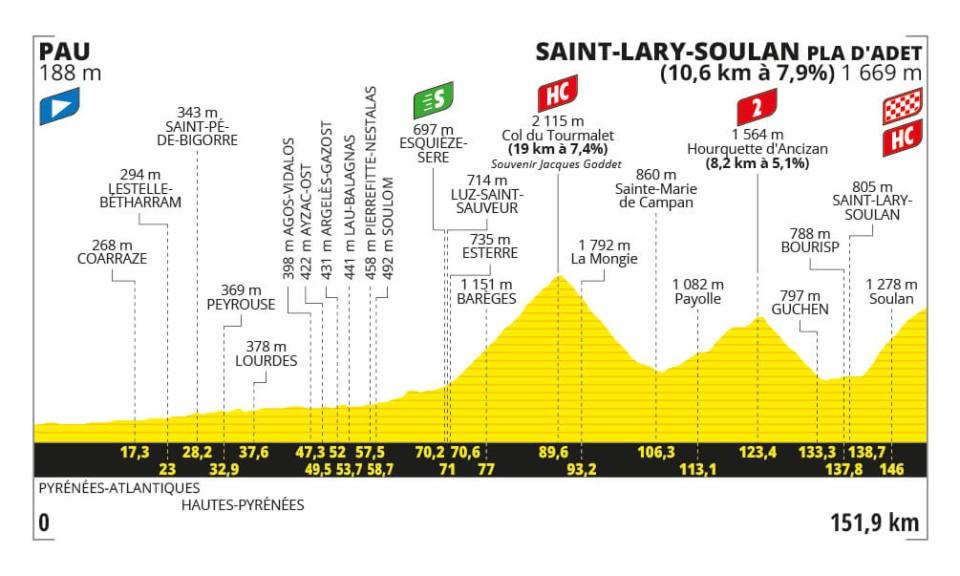
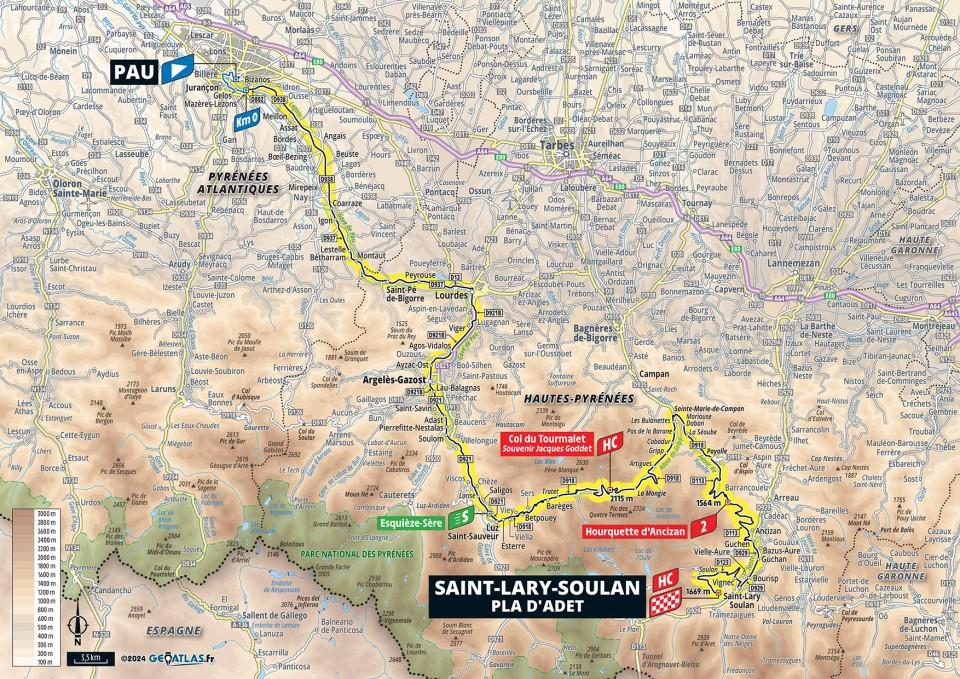
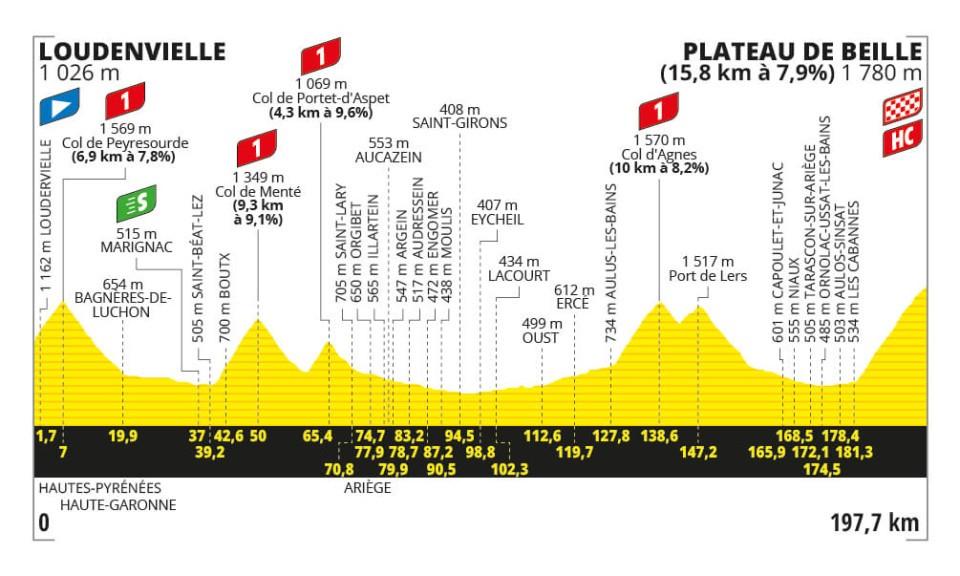
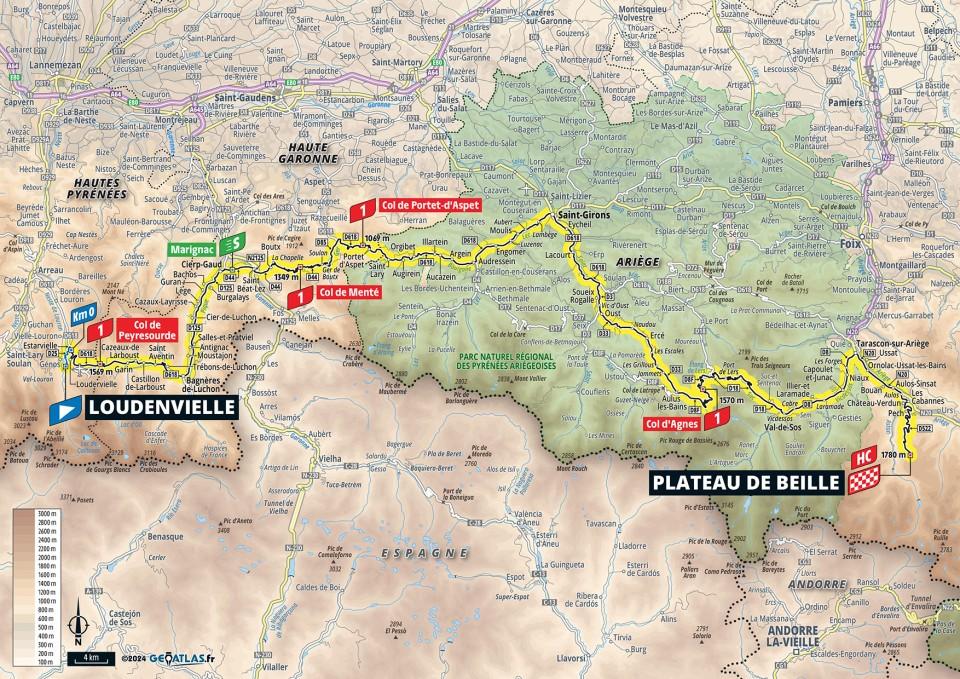
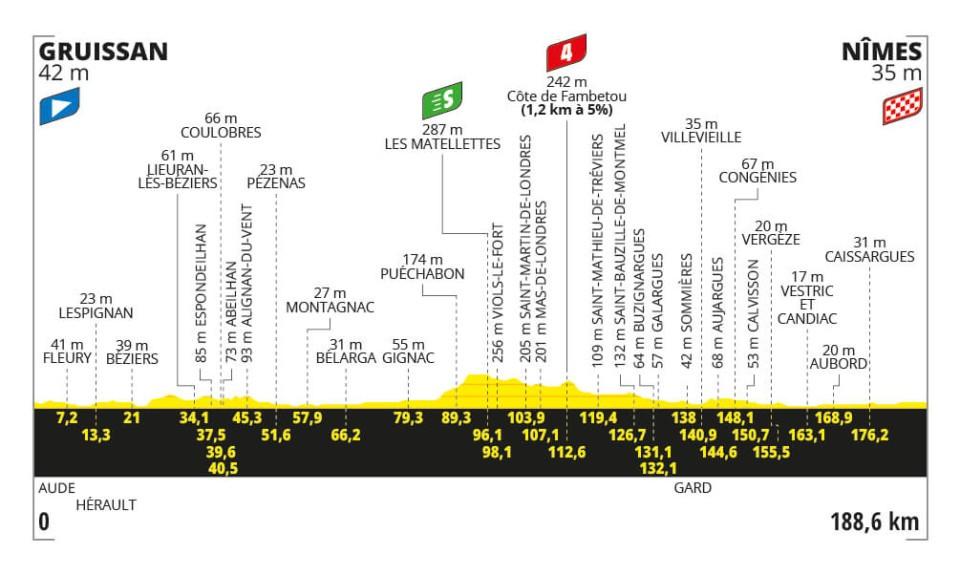
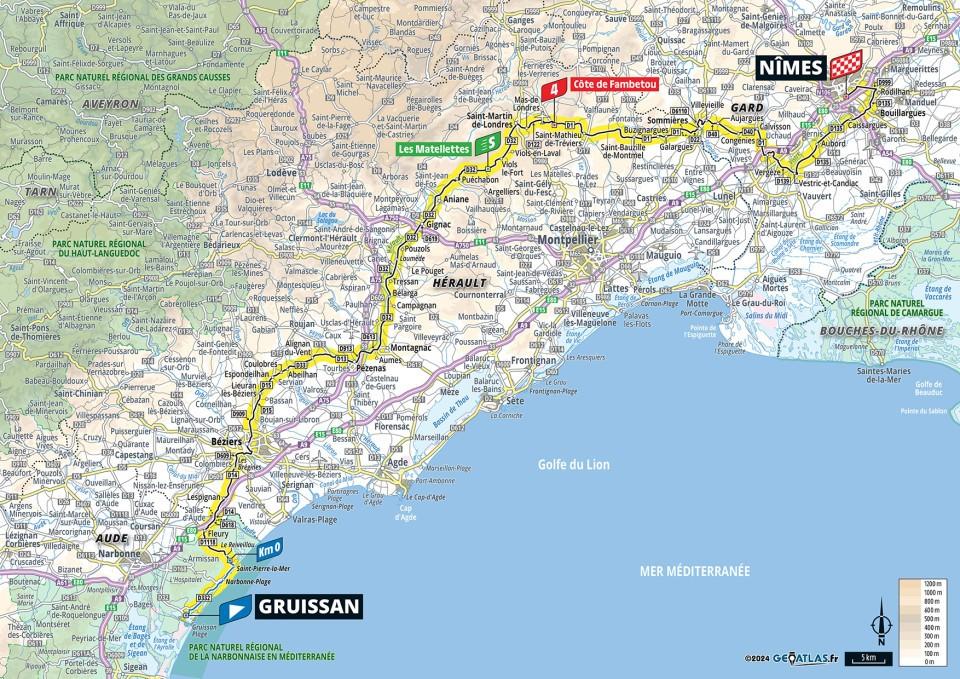
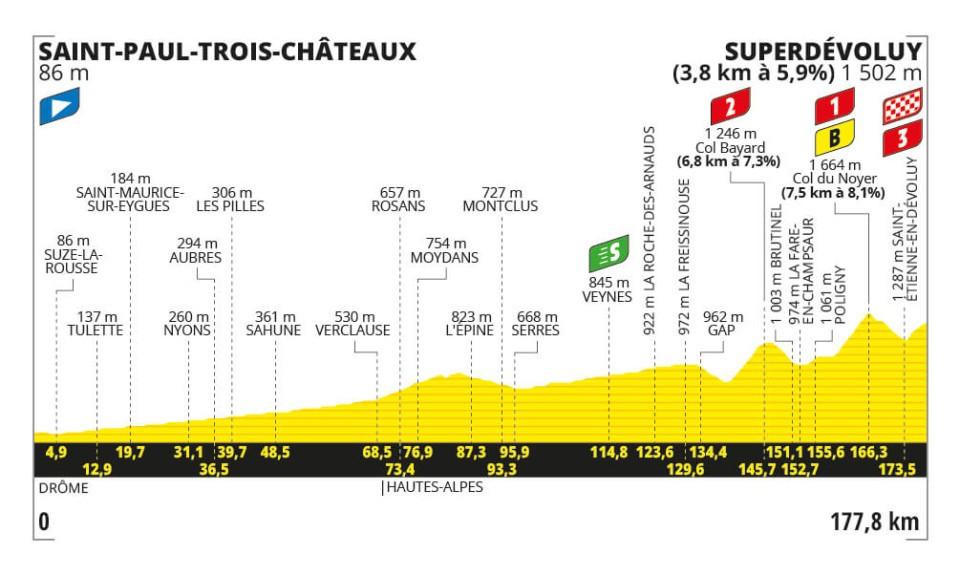
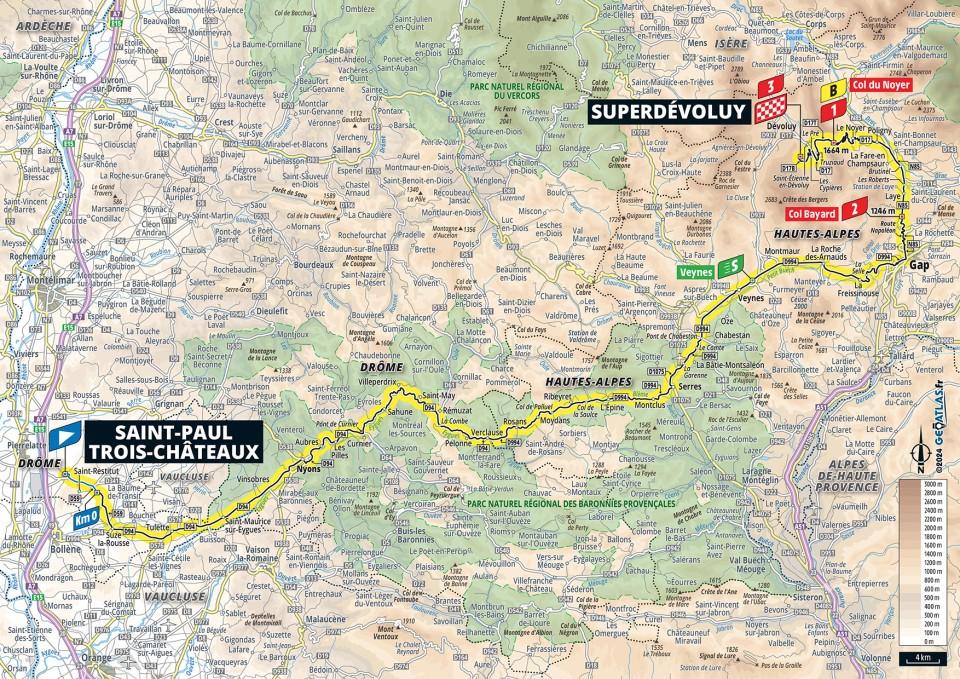
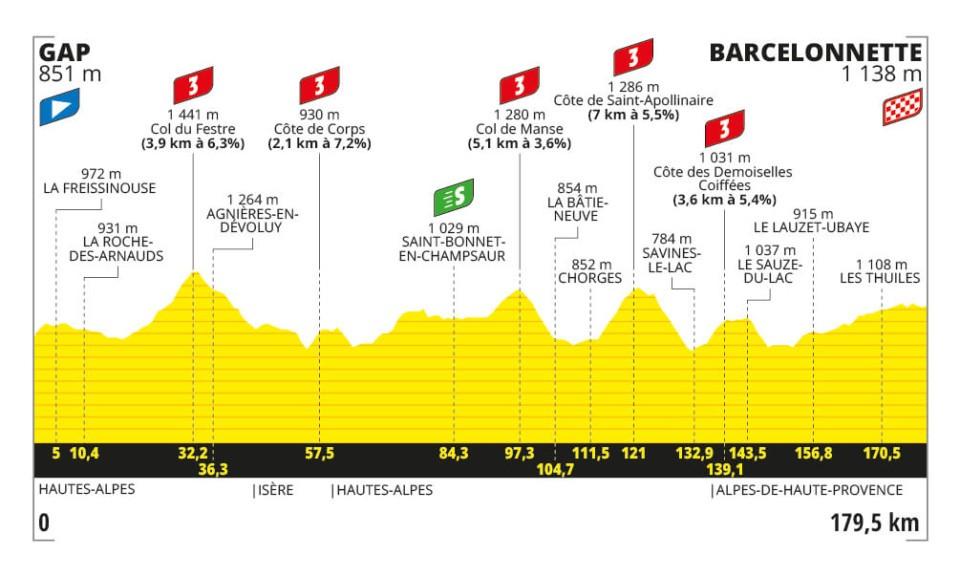
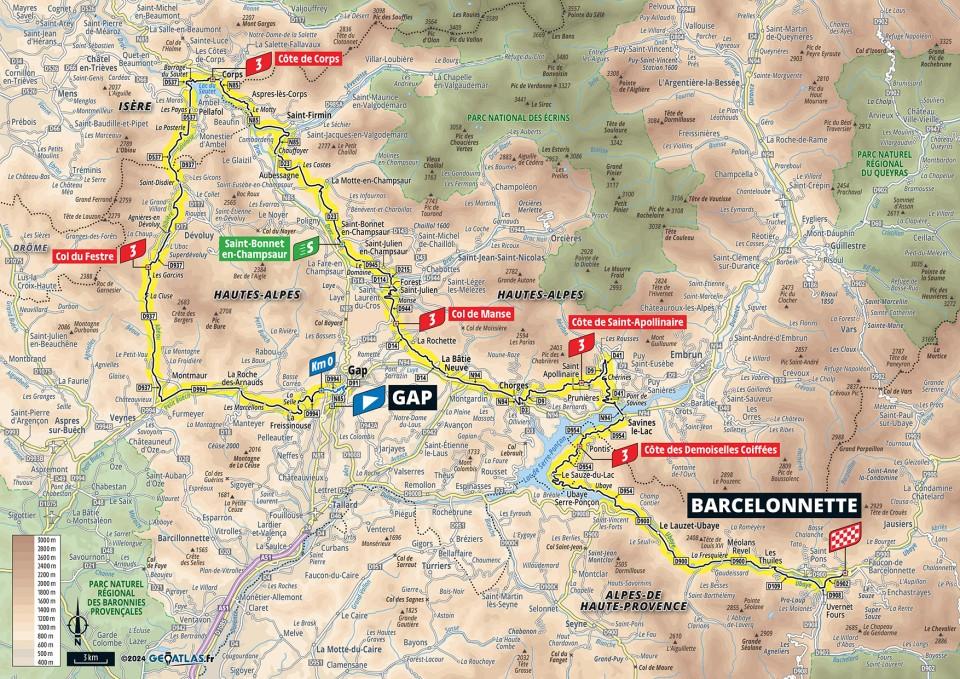
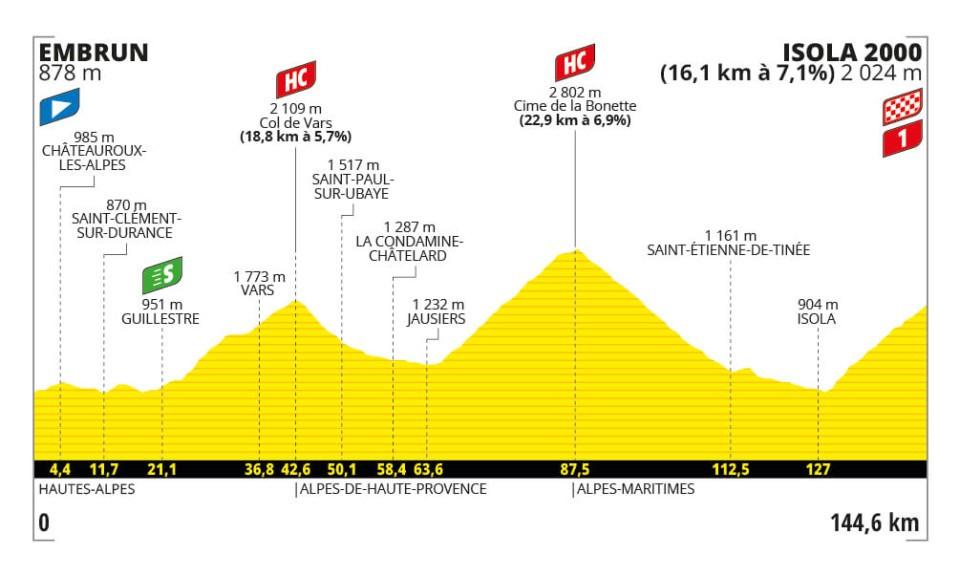
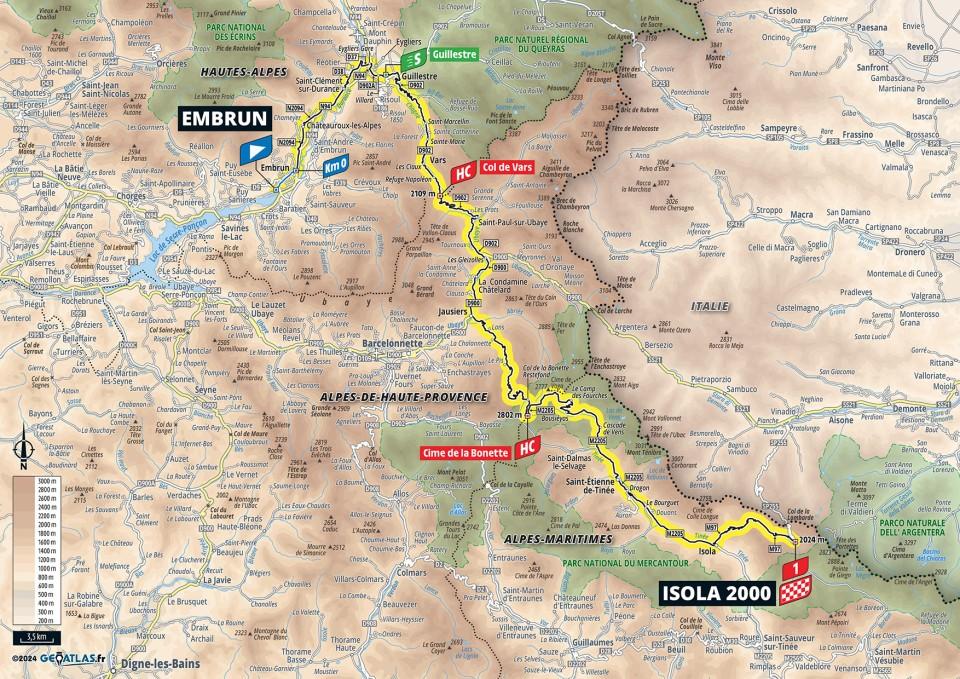
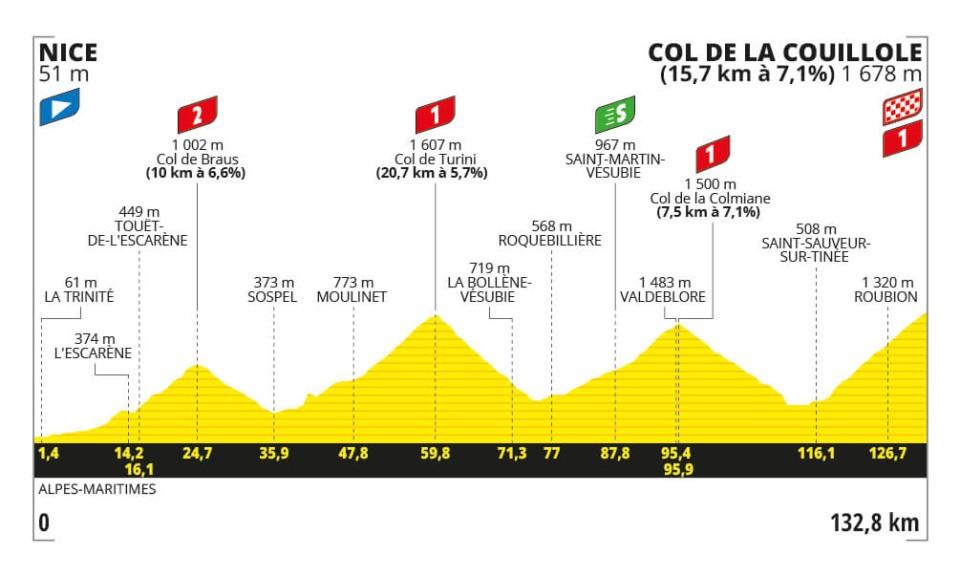
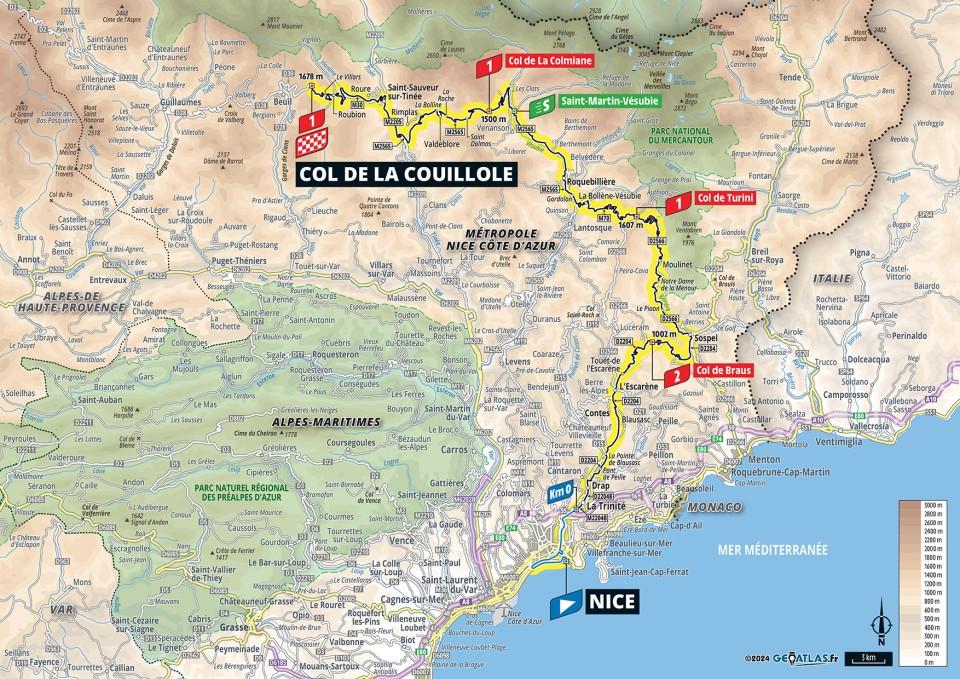
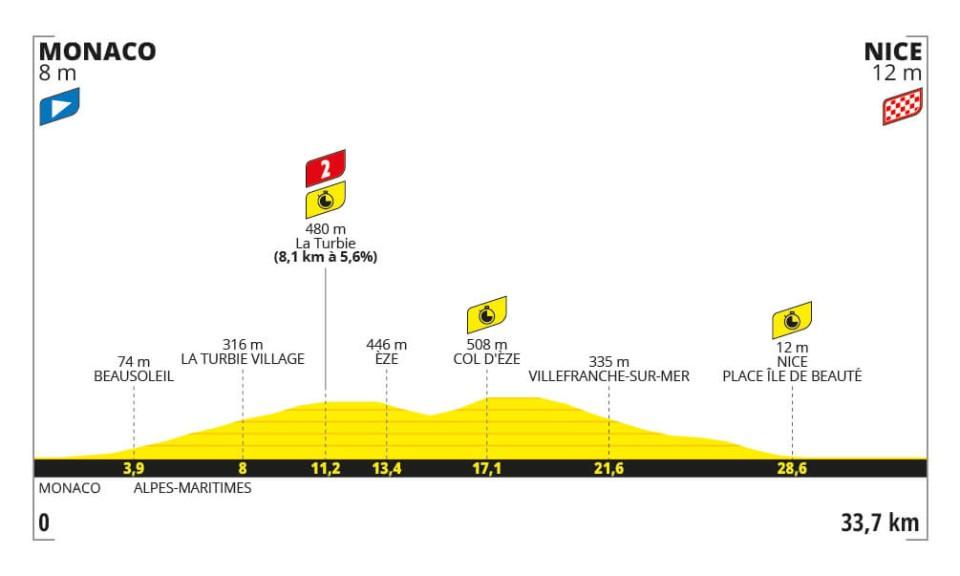
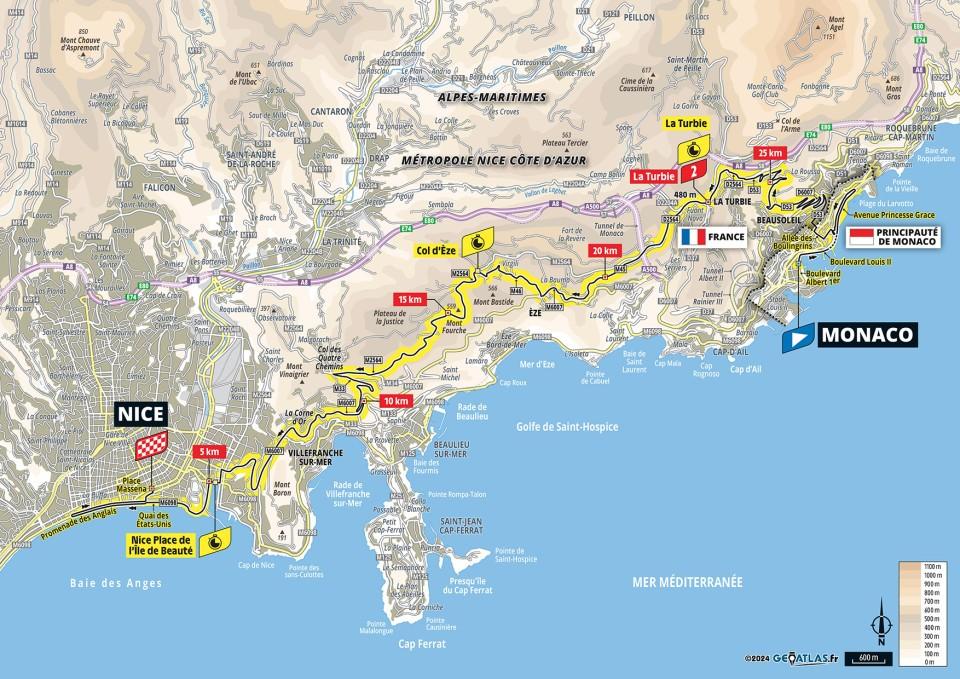
Add new comment
6 comments
Not necessarily. I could see him (admittedly as a long outsider, but then there are only outsiders on a stage like this) infiltrating the break on stage 18 and then clinging on to the finish.
If I had to put money on him finding a win somewhere, though, doing something similar on stage 12 looks a better bet, or, more likely, sprinting from a small group after a wind-affected day.
Surely five Cat 3s with 3150m of climbing, including most of the last 20 km being a long drag uphill, would be too much for Cav? I think that one's got rouleur written all over it if there is a breakaway, a couple of good northern classics riders would draw his sting long before the finish. I would, of course, love to be wrong…
Yeah - like I said - very long shot, but he does have form for surprising people on parcours like that once or twice. In all likelihood though, it's too late in the race - there will be too many people seeing it as a last chance, a very large break, and so too many people who can ditch him before the finish. It's not entirely out of the question, though.
Well, I for one am getting a bit excited.
Seems to be starting a bit early, dont recall it starting in the month of June much.
Second week off, birthday week, nice!
It has occasionally started in June but the tradition is usually to start the first Saturday after (or on) the first of July, this year they needed to start it early enough so the finish weekend won't overlap the opening of the Paris Olympiad, which it would have done if they'd gone for the more traditional 6th of July.
Have a cracking birthday week, excellent timing!
Always is.
Awful if it corresponds with the rest day.
Excellent if it's a day in the mountains.